 Fus roh dah! The dragons, long thought extinct, have reappeared and are causing havoc throughout Skyrim. There is one person able to put an end to the chaos. Unfortunately for the citizens of Skyrim, this person does not know it... yet.
1. Gameplay
Let’s start with Skyrim’s upsides. The game is absurdly long, but in a good way. There’s a lot of content and for the majority of my playthrough I had at least half a dozen quests to complete. There was always someone new to help or something new to accomplish. Even after completing the game, there were a good number of dungeons and towers that I had left unexplored. There is simply a ton of content in this game. The design of the game did is well designed. It would be difficult to describe to anyone who hasn’t played a game like this, but the number of different elements in the game could lead to some serious complications on a large scale. The game was designed so that, while the story and quests revolved around the player, the characters went about their daily lives in a routine that felt independent of the player’s actions. Sometimes you would find a character reading a book outside, other times that same character would be eating food in a tavern or sleeping in his house. This isn’t the kind of game where characters always stand around waiting for the player to interact with them. The quests are all very well written. Characters’ emotions feel genuine and there isn’t always a “best” answer to some of the larger choices. The game allows the player to have some freedom in the overall outcome of Skyrim and gives the player great freedom in how to approach the quests given. Some players will be at home using a brute-force type method, others may prefer to use stealth or talk their way out of combat. It’s an interesting system that was well designed and well implemented. But something kept nagging at me as I played the game. Even while I was having fun completing quests and talking to different characters, nothing really grabbed me like I expected. Maybe Skyrim was a victim of my high expectations, but I simply never felt truly compelled. There was hardly ever a sense of urgency, since there were no time limits on quests. Usually I would complete quests by doing actions that were in the same area of the map. So if one quest had me deliver an item to a character in Windhelm, while another quest wanted me to talk to a different character in that same city, I would simply do both at the same time. This by itself isn’t a huge issue, but it always seemed a bit odd that the dragons were on the brink of overrunning Skyrim, yet this invasion could easily be put on hold until I reached a specific area to get things started. Make no mistake, Skyrim is a great game that will be thoroughly enjoyed by all gamers. However, it seemed like the developers just spent too much time creating the broad strokes necessary to include a plethora of content but never took the time to get in depth in any of the areas they touched. The score for this section should be higher. I want it to be higher. But I never really felt like Skyrim gave me a compelling reason why this was an improvement from the previous iteration. Yes, it’s beautiful. Yes, the combat is awesome. Yes, certain elements in the game have been vastly improved from Oblivion. But the game as a whole feels like little more than visual enhancements. Maybe in a few years time I’ll come back to Skyrim and learn to appreciate the awesomeness of what the developers created. But as of right now, I feel slightly let down.
Again, this may seem like a lot, but when a single dragon bone weighs 15 pounds things get a bit skewed. I will admit that I am a packrat when it comes to playing games like Skyrim (if I think that it may have value later on, I take it), but I thought that the lack of flexibility with the weight limit was extremely aggravating. There are very few items that increase the amount of weight that the player can carry and very few perks that change the amount either. In the end I could see a very smart (or dedicated) player increasing his weight limit by 100 pounds, but that would be very difficult to do and would result in forced sacrifices in other areas. Through console commands (basically I cheated), I forced the game to increase my weight capacity. In order to cope with the extra items I carried on a regular basis I had to increase the weight capacity by over 1000 pounds. This will be absurdly high for most players, but the average player would probably require at least an extra 200 pound increase. One of the biggest problems that most gamers encountered when they first started playing this game is the amount of bugs (problems or glitches in the way the game is designed). While I understand that the systems within Skyrim are extremely complex and the interaction between the different systems can be difficult to predict (and thus difficult to adequately test), the number of bugs severely detracted from the playability of the game for a good portion of the gaming audience. Even I managed to find a few glitches that I was unable to solve at all, despite my ability to change the game using console commands. As a result there were a number of quests that I had to leave unfinished simply because I was unable to move them forward because of known glitches. One recurring enemy type are giant spiders. These spiders are able to bite the player at close range and shoot venom at the player from long range. Both of these attacks are able to poison the player, which can become extremely frustrating. The poison hardly ever drains health directly. Instead, it drains the player’s statistics (usually strength) which indirectly drains health semi-permanently. To make matters worse, the poison hardly ever seems to wear off. The only way to cure the poison is to find a specific potion, which seem to be rare in dungeons and somewhat expensive from merchants. The frequency that poisoning occurs means that the average player could spend thousands of gold just for potions to cure poison, which is expensive both in gold and in time. The only way that I was able to solve this problem was by constantly wearing a specific mask that prevented me from getting poisoned. Unfortunately, this meant that if I wore any other helms or masks during the game, I was running the risk of getting poisoned by the numerous giant spiders in the game. One minor problem that I encountered, but that may vary depending on the player, was the number of dragon souls I had available. Dragon souls are used to unlock “shouts” that the player can use. Most of these shouts are extremely powerful and useful in certain situations. Dragon souls can only be obtained by dragons which, for the most part, are encountered randomly in the wilderness and occasionally in small towns. While some players online seemed to complain about the frequency of dragon attacks, I found that I would end up having far too few dragon souls. Unlocking shouts was one of the highlights of the game for me, so when there was no way to force more dragons to appear I was left with no way to obtain dragon souls. This was fairly disappointing. 2. Parental Notices
Similarly, mage-class characters will burn, electrocute, freeze, or otherwise damage enemies using a range of spells with a variety of effects. These are all fairly mild and pale in comparison to what is included in similar games. I would consider it safe to say that 90% of all violence will look similar to what is shown above. However, as I mentioned before, the executions can be much more violent. While the nature of the executions will vary depending on the type of weapon the player is using and the skill that the player has with that weapon type, decapitation of enemies is fairly common after a certain point. The method of decapitation is slightly different depending on the type of weapon. For example, when I used a two-handed sword sometimes my character would just slice the enemy’s head clean off. If I decided to instead dual-wield axes, I would slice a character’s legs, then decapitate the enemy while he kneeled in front of me. The problem I had was that there were only a few execution animations for each type of weapon, which meant that I ended up decapitating my enemy frequently. This wouldn’t normally be a problem except that the decapitation execution for two-handed weapons, which I frequently defaulted to in close combat, was so jarringly slow that it was very obvious whenever it happened and made very little sense with the rest of the combat. Even when injured, what person would willingly kneel in front of an assailant and get decapitated? While these executions were not the bloodiest things I have ever seen in a game, they so starkly contrasted with the majority of the game that they were very obvious.
The cultists within the temple will explain to the player that the practice of Dibellic “arts” can range from creating works of art with paintings and sculpting to engaging in erotic sessions. The player is unable to join the temple in Skyrim but can do a few missions, all of which are innocuous. There is one female bartender in the game who the player must blackmail into treating another character better. The player discovers that that the bartender is actually a Dibellic cultist who frequently practices her arts on (sometimes married) males in the city. If knowledge of her practice were to get out, her reputation in the town would be ruined. The specific nature of her practices is never disclosed except for the fact that it involves sex. The player can also get married in the game although this fact is so well hidden that if it weren’t for an available achievement stating this option (as well as looking online for a guide as to how to begin the path to marriage) I would have missed it entirely. For something that is usually as significant to these types of story-based games as romance and marriage, marriage in Skyrim was unbelievably difficult to discover. Essentially the player has to wear a specific amulet that lets other characters know that the player is “available”. This gives the player unique dialog options with certain characters, and makes it so that the player can ask these characters if they want to get married. The player finds the desired mate, goes to the ceremony, and then tells the new spouse to stay in a home that the player owns. That’s it. There are no dates, there are no real unique conversations, and very few extra options. If the player sleeps in the bed of the house in which he told his spouse to stay, he gets an ability bonus called “Lover’s Touch”. No mention of sex or sexuality is ever even brought up. While I appreciate the lack of blatant sexuality in this game, it seems like a huge oversight that more detailed romance options were not included at all. Including something that allows the player to go through the ceremony of marriage is great, but making it seem like such a casual event is almost as aggravating to me as when games treat sexuality lightly. Still, these are all easy to miss within the sea of content that Skyrim holds.
The easiest way to find the magical properties of each ingredient is to simply eat the ingredient. For some ingredients this isn’t so absurd (garlic, wheat, berries, etc.), but eating some of the ingredients makes no sense at all. For example, would you ever eat a raw Giant’s Toe or Eye of a Saber Cat? What about a small pearl, a pile of salt, or “bone meal” (which is just ground up bone)? Once an ingredient has been eaten and at least one of its magical properties discovered, the ingredient can be used to create potions and poisons. Different ingredients with similar effects are combined at an alchemical table to form a potion (which gives the player a positive effect) or a poison (which can be put on a weapon to give enemies a negative effect). Potions and poisons can also be found frequently throughout the game or bought from stores that specialize in alchemical ingredients. While I found that I hardly ever used poisons (except as a means to get more gold from vendors), I was frequently required to use potions. Health, stamina, and mana potions were so vital to my ability to effectively combat enemies (especially the stronger enemies) that for some battles I would find myself using six or more potions in a matter of minutes. Most of the other potion types (of which there are almost as many as there are ingredients) I hardly ever used except in rare circumstances when I needed to increase my strength or health temporarily. Aside from the ingredients that go into the potions, potions as a substance are completely innocuous. The effects that the potions give to the player, aside from the ones that have to do with magic, are the same type of effects we could get from over-the-counter pharmaceuticals. These substances (with one exception) are never treated as some sort of drug or used for recreational pleasure. They each have a specific purpose and are only meant to be used in specific circumstances. The lone exception is “Skooma”, one of the few “potions” that is mentioned in the game specifically by a few of the characters. Skooma is a highly-addictive substance that can give users an intense high but leaves them so unbelievably addicted that they are forever physically and mentally scarred by its use. For some reason, the affects of Skooma on the player have changed significantly from previous installments in this series. In Skyrim, Skooma is not addictive and simply restores the player’s stamina. Previous installments would have Skooma significantly detract from some of the player’s statistics. Still, Skooma is a somewhat difficult substance to obtain and extremely easy to ignore (since its affects are even less noticeable than a simple “Potion of Stamina”). So aside from a few conversations or quests that may involve this substance, its presence is almost nonexistent. There is one other substance worth mentioning in this game. A quest for one of the Daedric gods requires the player to first inhale the incense of some greenish potion that emits some very nasty fumes. The incense clearly get the player high and this evidently allows the player to communicate with the Daedric god in order to get the mission.
3. Other Factors
Don’t let your guard down yet though. If the modding community of Skyrim is anything like that of Oblivion or the Fallout games, we’re going to see a crop of highly adult-themed mods coming out in the near future. There is already a mod that allows female characters to masturbate at will, and if history is any indication there will likely be a number of mods that include sex and prostitution. While the amount of content currently available may not warrant as high of a rating as this category received, the future possibilities and past history of the series is a significant factor in the overall score. UPDATE: As I suspected, I have recently found a fully animated prostitution mod.
This could be ignored fairly easily except for one major conflict. Part of the “civil war” that is going on between the Nordic people and the Imperials involves the inclusion of “Talos” in the Nine Divines. Talos was a Nordic warrior who eventually achieved a heroic status amongst the population of Skyrim. The Nordic people of Skyrim believe that Talos was so great that, upon his death, he was taken up to the heavens and made one of the Nine Divines. However, the Imperials consider this to be heresy and ban any worship of Talos. Naturally, this fuels fire to the already tense situation between the Nords and the Imperials. While the Nine Divines never directly interact with the player, the Daedric Gods most certainly do. The player will have the opportunity to communicate with and eventually become the champion of each of the Daedric Gods. It is quite an intimidating process and the Daedric Gods do their best to make you feel like little more than a pawn in their games.
The player can eventually choose to join the somewhat infamous Thieves’ Guild that haunts the sewer within one of the seedier cities in Skyrim. By doing so, the player will eventually have to agree to complete a few extortion missions, some breaking and entering, witness intimidations, and planting evidence. The methodology of the Thieves’ Guild works less like Robin Hood and more like The Godfather. That may seem a bit comical, but don’t take it lightly. The player will have to intimidate a number of innocent shopowners within the city in order to collect “protection” money. This may involve beating up these shopowners until they submit and agree to pay the fine. There’s always a non-violent way to get them to pay, but those usually involve other forms of extortion or verbal threats. Either way, I felt somewhat surprised that no one told me to break some kneecaps. Aside from this, one of the central themes in Skyrim is the civil war between those that want an independent Skyrim and those that want to keep Skyrim under the control of the Empire. There are advantages and disadvantages to both sides. The player will have the opportunity to join one of the two sides and fight either for or against the Empire. The Stormcloaks, the name of the group that is fighting for an independent Skyrim, do have a history of “anti-law” actions. Aside from leading a rebellion against the current rulers of Skyrim, which is a definite form of anti-law, the leader of the Stormcloaks killed the High King of Skyrim. However, the actions of the Stormcloaks are very similar to the actions of any revolutionary group trying to gain control of the territory they view as “their land”. Their actions may be against the current form of government, but the overall goal isn’t to overthrow the government completely. They are simply trying to gain independence for their land and their people.
The game will require the player to use magical dragon “shouts”, which are words that, when spoken in the dragon tongue properly, can cast powerful magical spells. The shouts can make the player breathe fire, sprint long distances instantly, or even summon a friendly dragon to fight alongside the player. It’s actually pretty awesome, but it’s impossible to remove magic from the process. Aside from that, there is an abundance of more mundane magical spells. They each fall into one of four different magical categories based on their effects. I found that I ended up using Destruction (spells that damage the enemy) and Restoration (spells that heal friendly characters) the most. However, there are powerful spells in all four classes, and all characters (especially Mages) will end up using many spells throughout a complete playthrough. Even if a player somehow manages to avoid casting spells frequently, there are many enemies who will take advantage of the wide arsenal of magical spells and enchantments in their fight against the player. In almost every battle, even the ones against the zombie-like Draugr, at least one spell was cast against me or my allies. Weapons and armor are also frequently enchanted with some sort of magical spell that either helps the player’s abilities or injures an enemy in addition to the damage that the weapon would normally deal. These enchantments can have extra effects, like lighting an enemy on fire, but all of the enchantments are based on spells that the player can normally cast. There are other forms of magic that are included in the quests and locations that the player will encounter, but only one more element warrants mentioning. There is a spell called “soul trap” that gives the player the ability to trap an enemy’s soul into a “soul gem” and use the collected souls to recharge enchanted weapons. While for the most part souls can only be taken from animals, “black souls” (the souls of people) can be taken and put into black soul gems for an extremely powerful enchantment. I always had a bit of a problem with the concept of stealing someone or something’s soul, even if it was the only way to recharge a magically enchanted weapon. As a result of this and the fact that magic essentially gave melee weapons “ammunition” that had to be replaced, I ended up avoiding magical weapons whenever possible.
Skyrim included a surprising number of executions. However if we accept that the society of Skyrim is based on medieval European culture, executions would have to be relatively common. As a result, the executions never seemed entirely out of place. I found it slightly disappointing that I was unable to prevent a few of the executions, but that was relatively insignificant overall. The game opens with the player captured along with other criminals and taken to a small Imperial outpost. The player, along with the other criminals, is sentenced to death by beheading. The player watches as one criminal is beheaded right in front of him. Then it’s the player’s turn. A similar execution occurs later in the city of Solitude. The player enters the city to see the execution already in progress. The only “execution” that I ever had a serious problem with was when the player was initiated into the Dark Brotherhood, a sort of assassin’s guild. The player is put into an abandoned house with three captives and told that one is the target of the guild. The player must determine which captive is the target and then kill that person. The part that made me uneasy wasn’t necessarily the idea of killing one of the three people (by that point I had killed many people during my quests), but more the fact that there was no clear “good” choice. The Dark Brotherhood aren’t on some sort of noble crusade, they’re just an extremely skilled set of mercenaries. So while one of the three captives clearly stood out as a criminal, I could never get a justifiable reason why this person should die. The other Dark Brotherhood quests were better described as “Murder for Hire” or “Assassination”, and are included below in the appropriate categories. Torture While torture only occurs once in the game, signs of torture are present numerous times throughout the world. Dungeons will sometimes have torture chambers attached with different instruments of pain. Most of the time these instruments are bloodied from frequent use and sometimes cages and jail cells will hold dead victims. While evidence of torture was kept to lots of blood and some gore, there were definitely some characters who wore scars from their brushes with cruel jailers. There was also a character who the player has to save from an intense and violent interrogation. Human Disfigurement Disfigurement is relatively rare and only came in one obvious instance. The player is constantly required to fight zombies known as “Draugr”. These are basically just mummified Nord warriors resurrected to protect the tombs that they inhabit and the treasures contained within. The Draugr are not particularly disturbing, but their constant presence does make them a factor. Child Abuse There is one mission where the player finds a small child who is praying for someone to come and kill the woman who runs an orphanage in one of the cities. Evidently the woman is verbally and physically abusive to the children in the orphanage. This fact is later confirmed when the player goes to the orphanage and eventually kills the woman. Kidnapping Kidnapping does occur in the game, but is fairly rare. In the Dark Brotherhood initiation, the player is kidnapped and taken to an abandoned house where he has to kill one of three other captives (who were also kidnapped). There may be other kidnapping victims in the game, but this element is relatively rare and subtle. Cannibalism There is a particular Daedric god whose followers are all cannibals. The player can become a member of this cult, but in order to do so must eat the flesh of another human. The actual process is pretty mundane (just bring a specific person to the temple, kill him, press the “eat” button) and there’s no accompanying animation, but it can be a fairly disturbing concept. The actual cannibalism option is shown below. Rape There is one character who, if the player asks about the character’s history, will describe how she was captured by bandits and raped repeatedly. She eventually managed to kill her captors and escape. This is the only blatant mention of sexuality in the entire game. Murder for Hire As I mentioned before, the Dark Brotherhood is an assassin’s guild. However, instead of working to promote a particular political or social agenda, these assassins are simply a very specialized set of “sellswords” (aka mercenaries). The Dark Brotherhood is the kind of group that should offer Faustian deals and sometimes, albeit rarely, do. The player will be hired to kill a variety of people. Sometimes these people deserve death, sometimes they don’t. Most of the time the player won’t know for certain. The missions are designed so that the player is not supposed to get a justification for his murders. The justification is that it’s the player’s assignment. Some missions will allow the player to ask for a brief history of his target, but most of the time this is designed to help the player figure out the target’s behavior and how he will respond to the player’s presence. Whenever a player in any game gets an “assassination” mission, there is a good chance that the mission will not be to make this world a better place. It’s always up to the player whether or not he would like to accept the assignments. Assassination There were two Dark Brotherhood missions that I found especially disturbing. Aside from the previously mentioned missions, these struck me as being particularly cold and heartless. The ultimate goal of these two missions (and others) was to assassinate the Imperial Emperor. The first mission involved the player going to a wedding and assassinating the bride. Her crime? She’s the first cousin of the Emperor and her death would create fear over the safety of the Emperor. The person who hires the player insists that the assassination must take place on the wedding day immediately after the ceremony. I had a problem with most of the Dark Brotherhood missions but this one seemed unbelievably cold. The consequences for this crime are, aside from being chased by guards if caught, only positive for the player. The player is able to use the results of the assassination in preparation for the assassination of the Emperor. Eventually, after a few twists, the player does end up murdering the Emperor twice. The first time he poisons a soup and feeds it to the Emperor, but it turns out to be a double. Eventually the player has to find the real Emperor and kill him. What I found especially puzzling was the fact that none of the other characters reacted to the Emperor’s death. Even after completing the assassination, other characters would frequently say “for the Emperor” or reference the Emperor as if he were still living. Treason Aside from the semi-treasonous act of murdering the Emperor (it would only really be considered treason if the player chose to help the Imperials), there was one mission where treason was definitely a factor. In this case, I’m defining treason as “the betrayal of trust”, which goes beyond the scope of betraying one’s country or government. In one mission, the player has to bring a friend to a specific location and then murder that friend. The reward for completing this quest seemed so small considering the price that was paid to obtain it, but that aside the nonchalant nature that this mission takes treason of this sort was, to say the least, frustrating. The game makes it clear that the Daedric gods are not out to make humanity better, but there’s no way for the player to defy these gods except by ignoring the tasks assigned. So your choices are to either betray your loyal companion or do nothing.
4 Comments
Illuminated elder
2/3/2016 04:55:53 pm
Thank you for this in-depth evaluation. I am trying to determine if I will let my son play this game, and your objective and concise information was incredibly helpful. Your rating system is clear, and the topics you address are precisely the elements I was trying to determine the answers to. Thanks again!
Reply
Joel
5/16/2016 02:20:35 am
This should've been minimum age 12 and recommended age 14
Reply
Joel
5/21/2016 06:25:20 pm
No minimum age 10 and recommended age 12
Reply
Danielle
11/1/2016 09:42:58 pm
There is another option, a good option, when the Dark Brotherhood kidnaps you. Don't execute the three bound individuals. Instead, attack Astrid.
Reply
Leave a Reply. |
Like what we do? Want to see more? Donate to the site using the button below!
Not sure what a term means? Read the definitions!
Not sure what a review section is about? Find out more information!
|
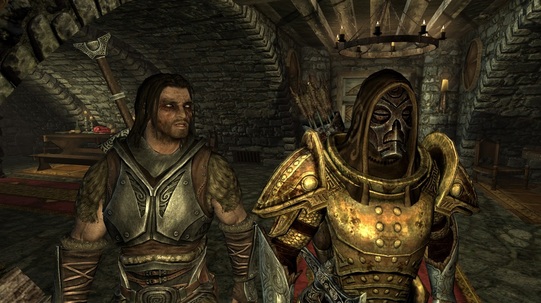
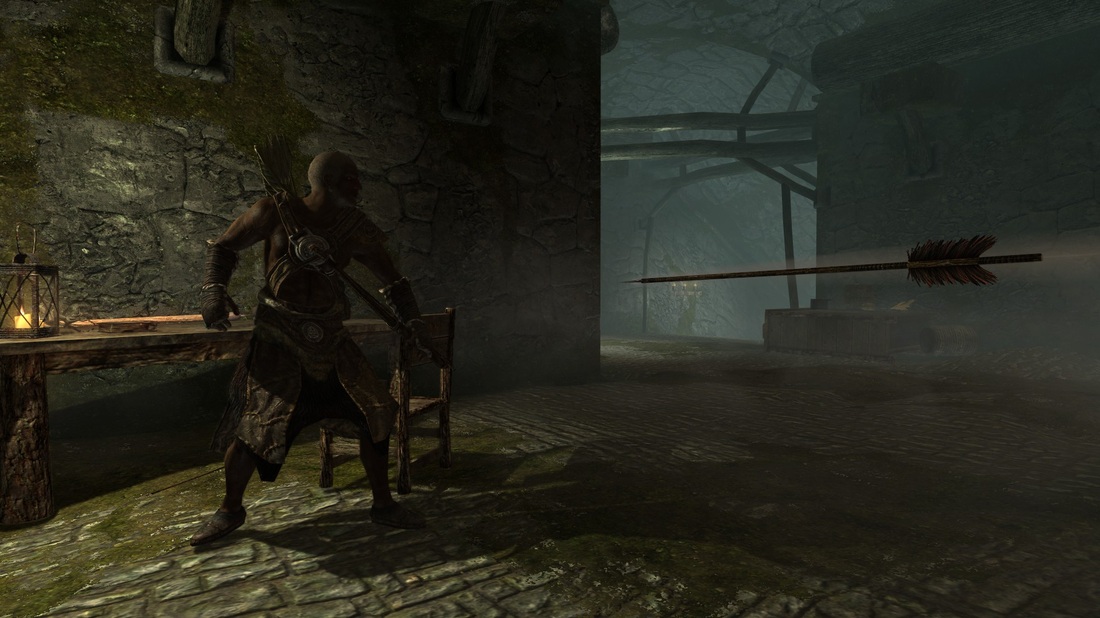
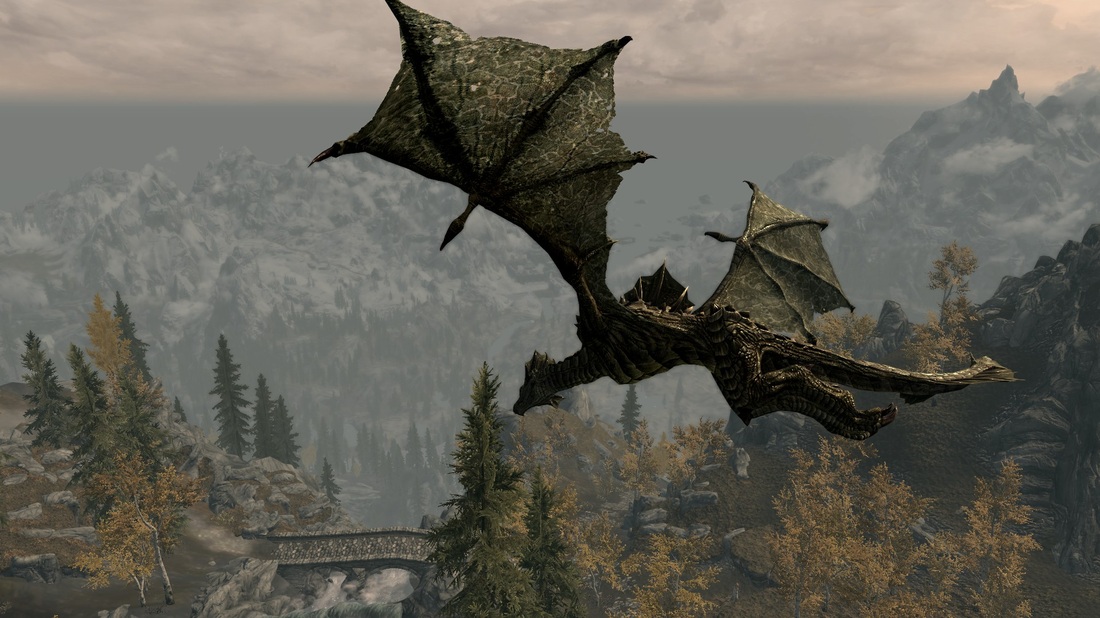
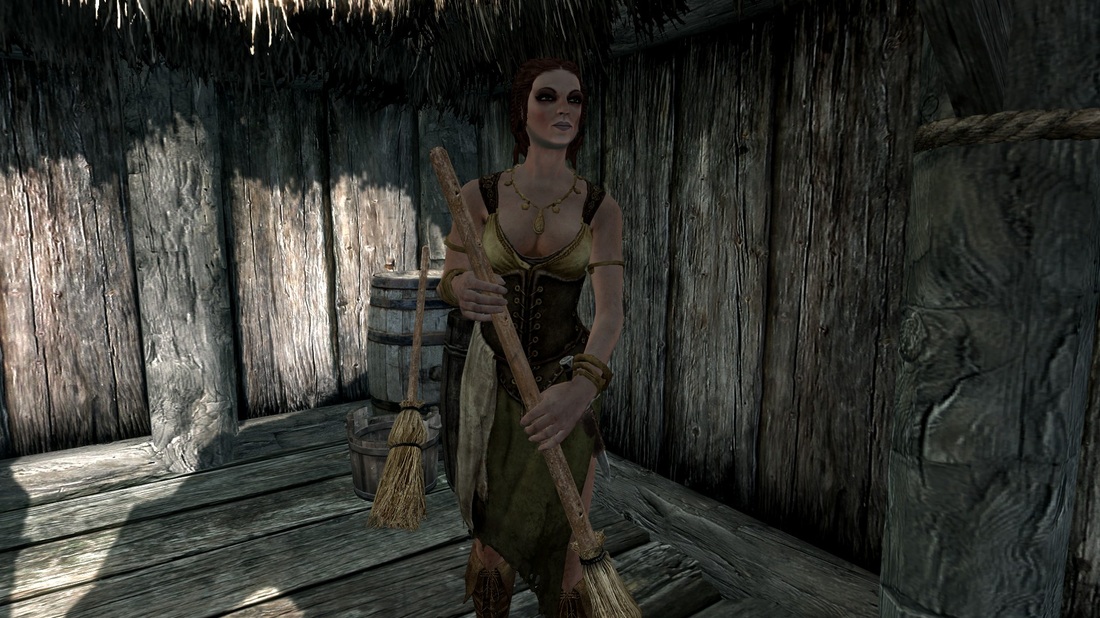
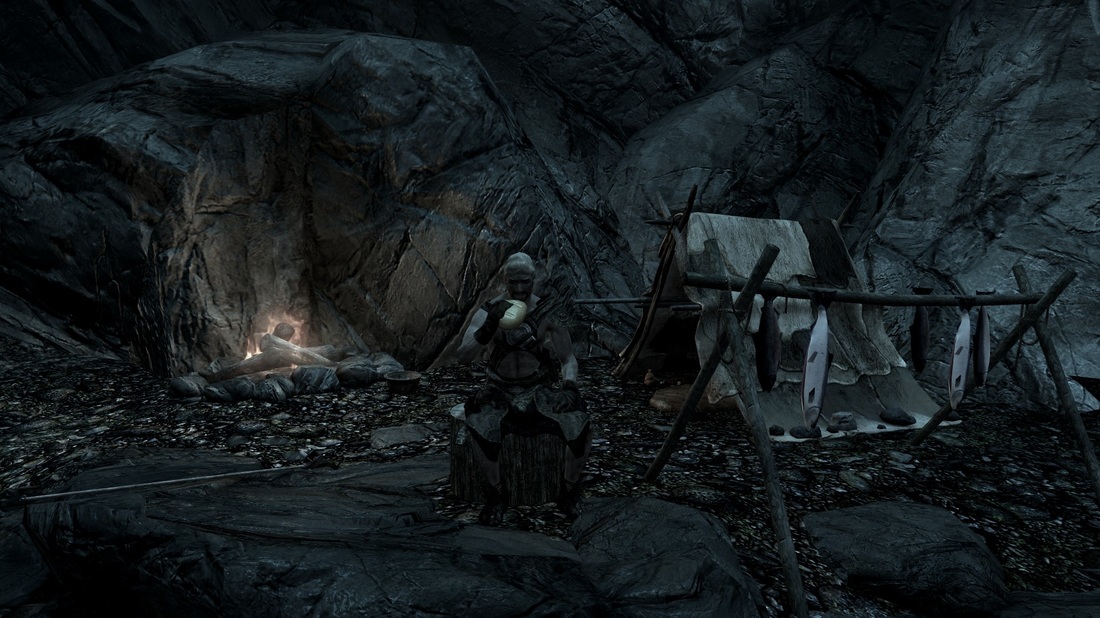
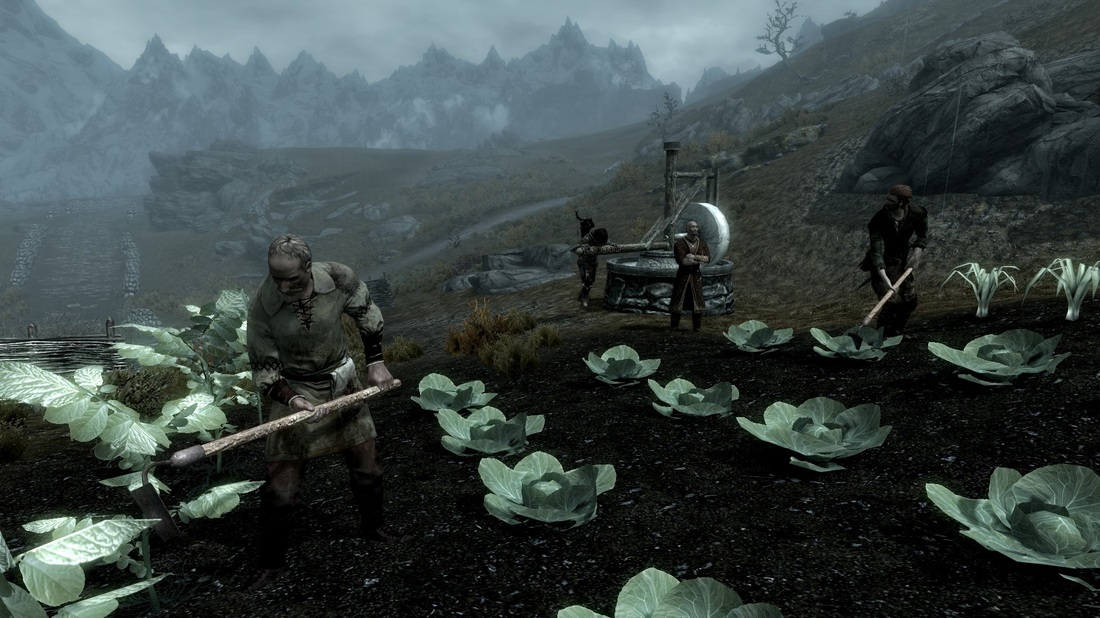
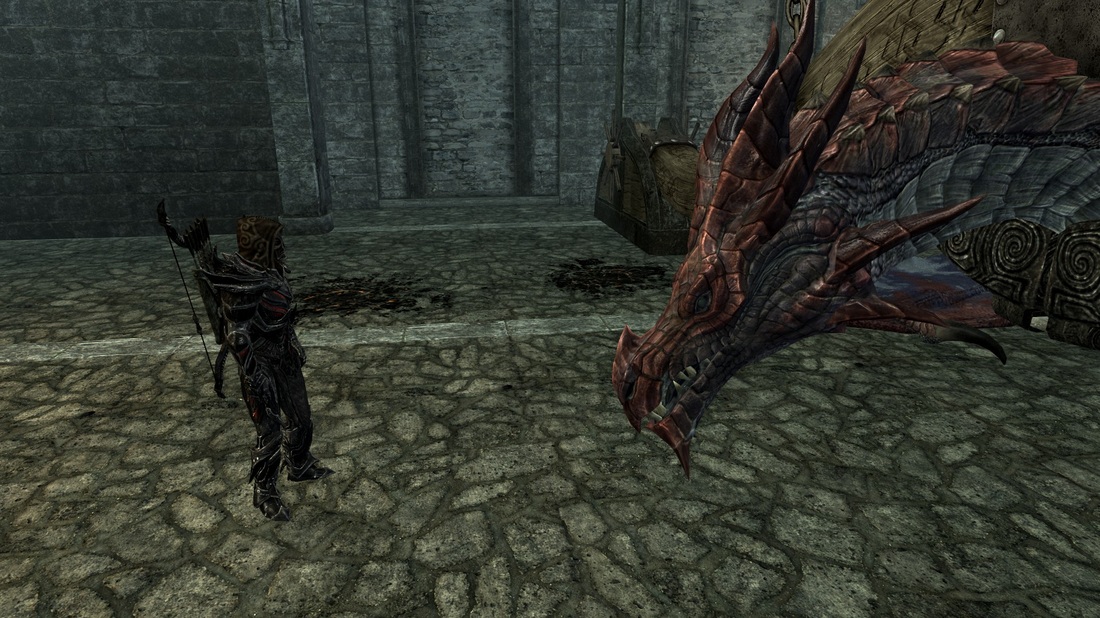
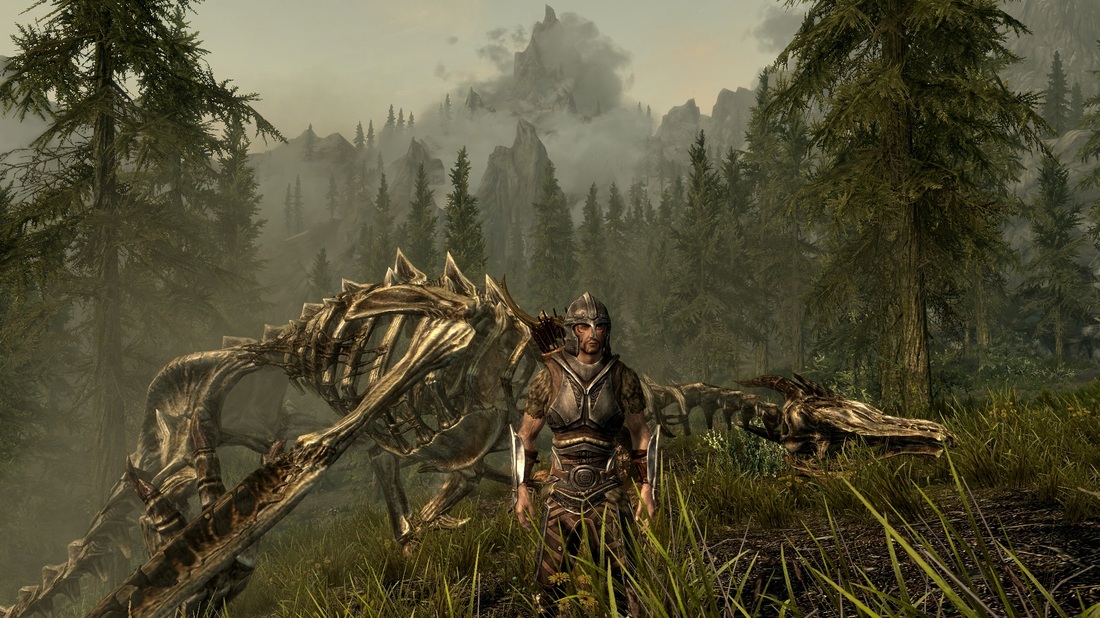
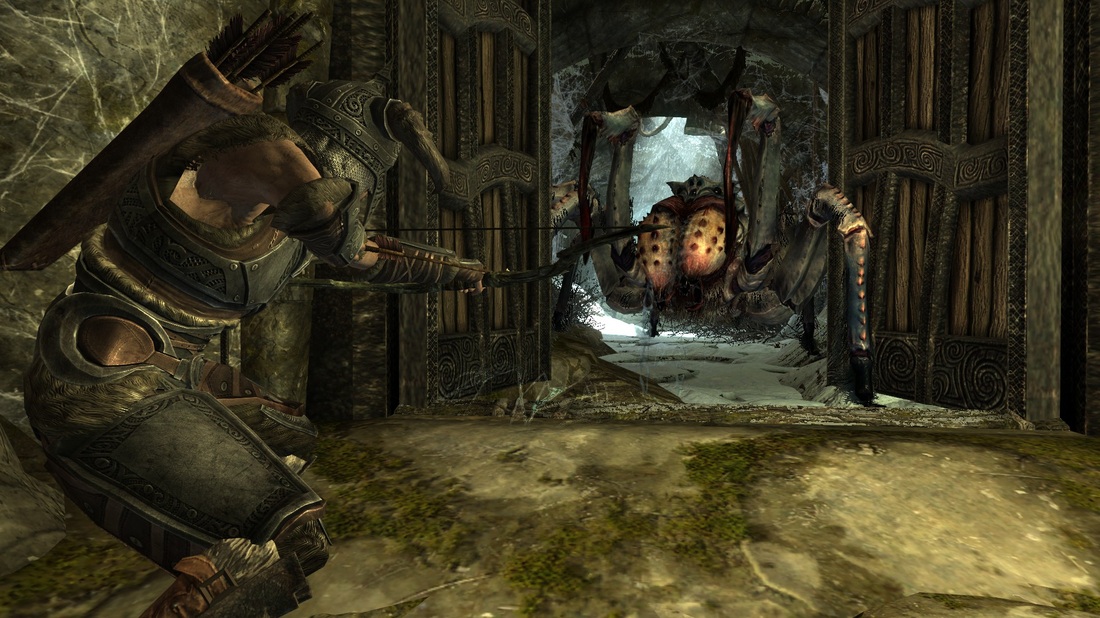
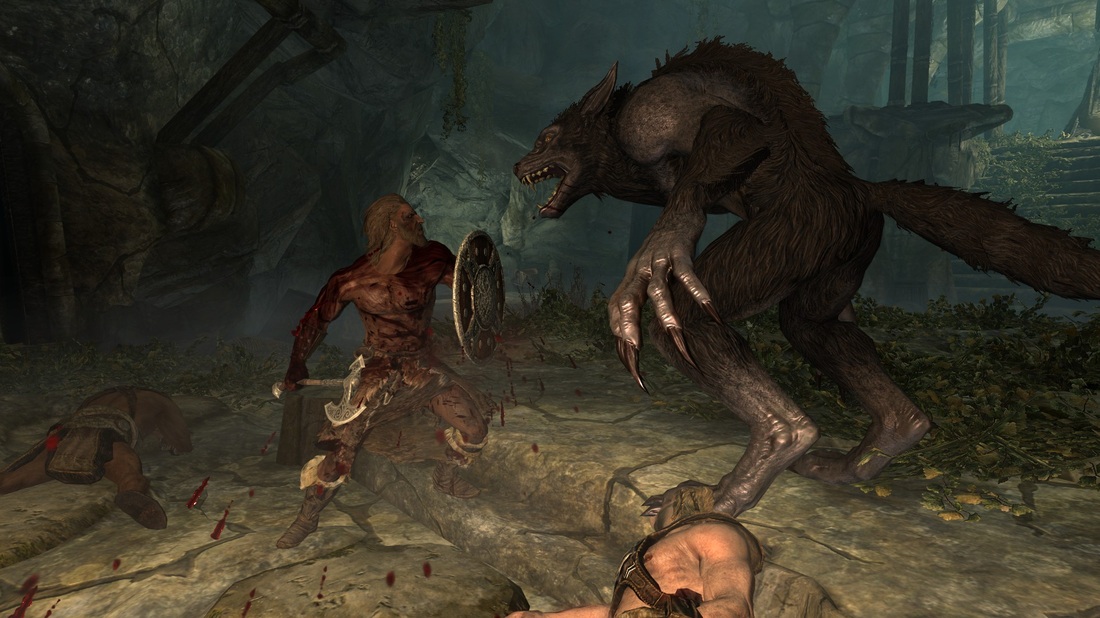
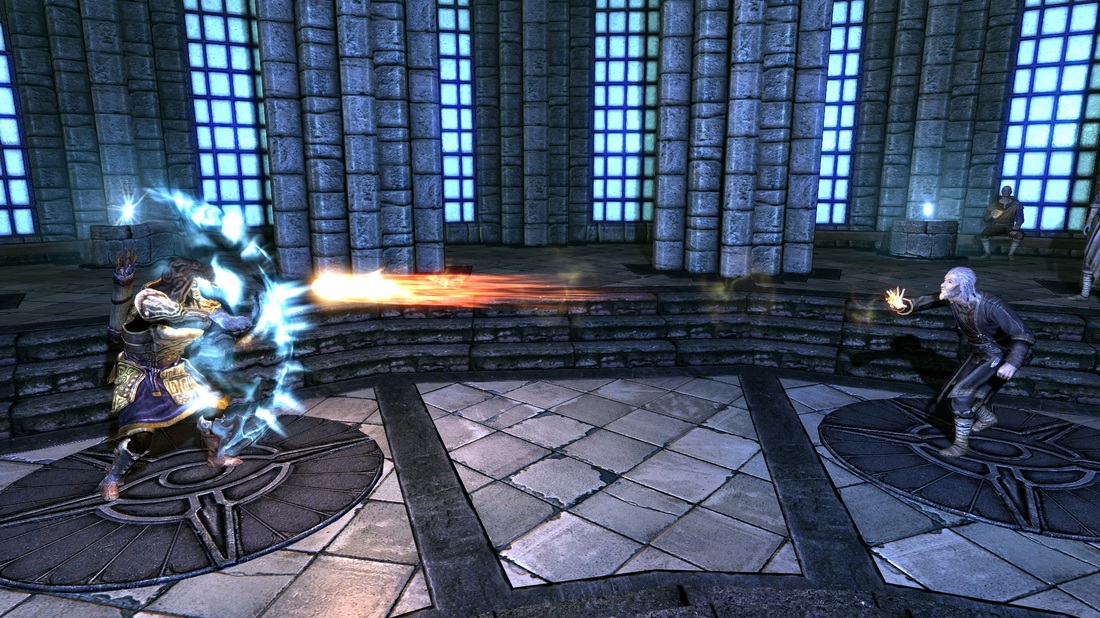
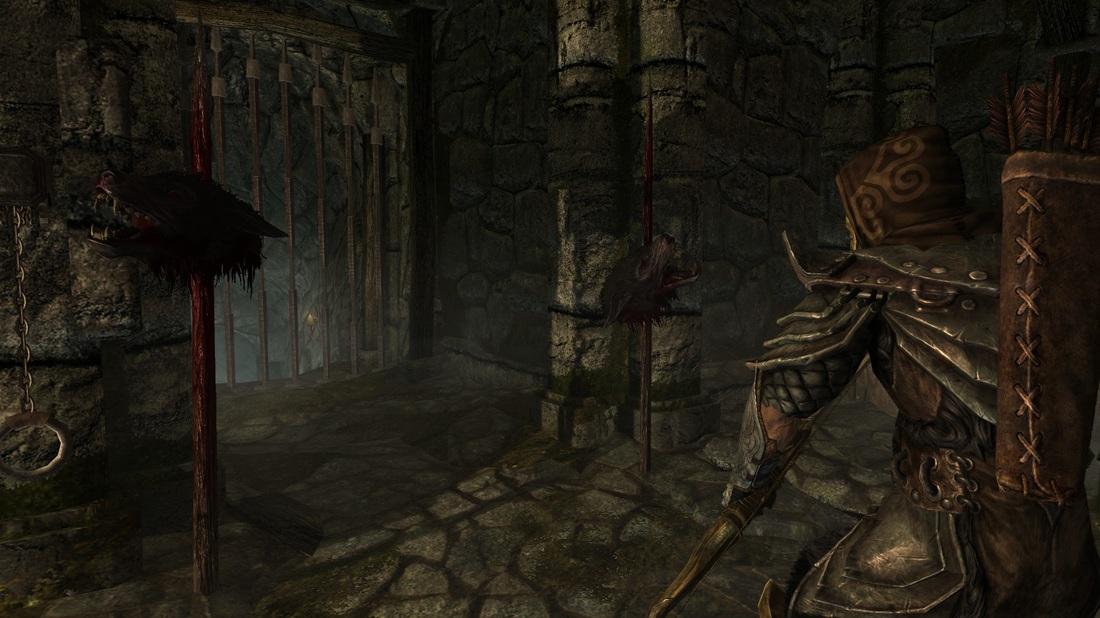
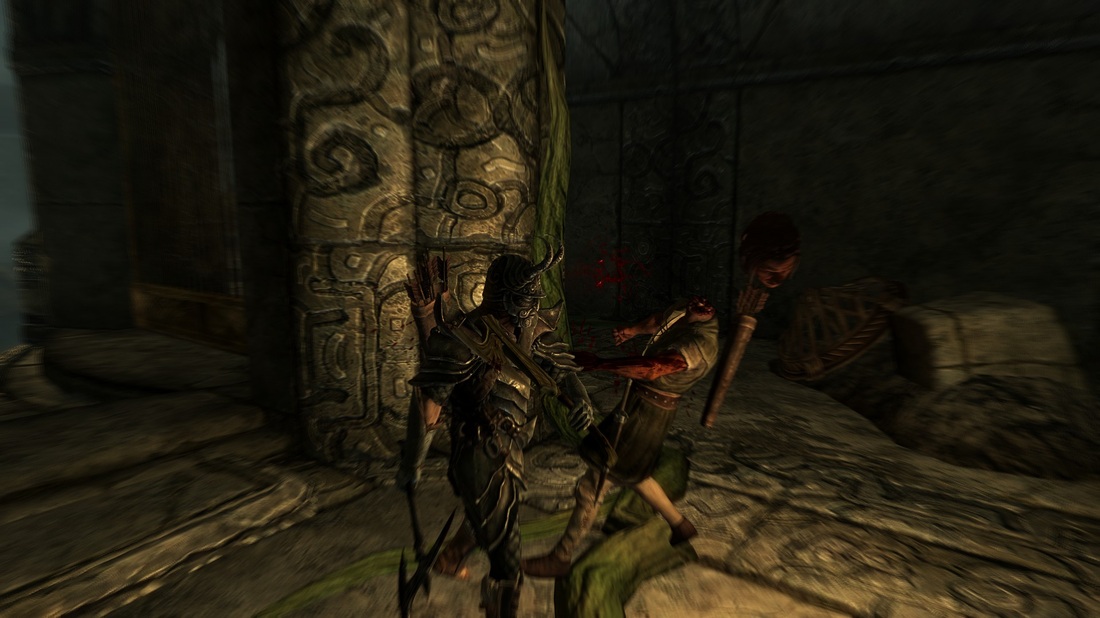
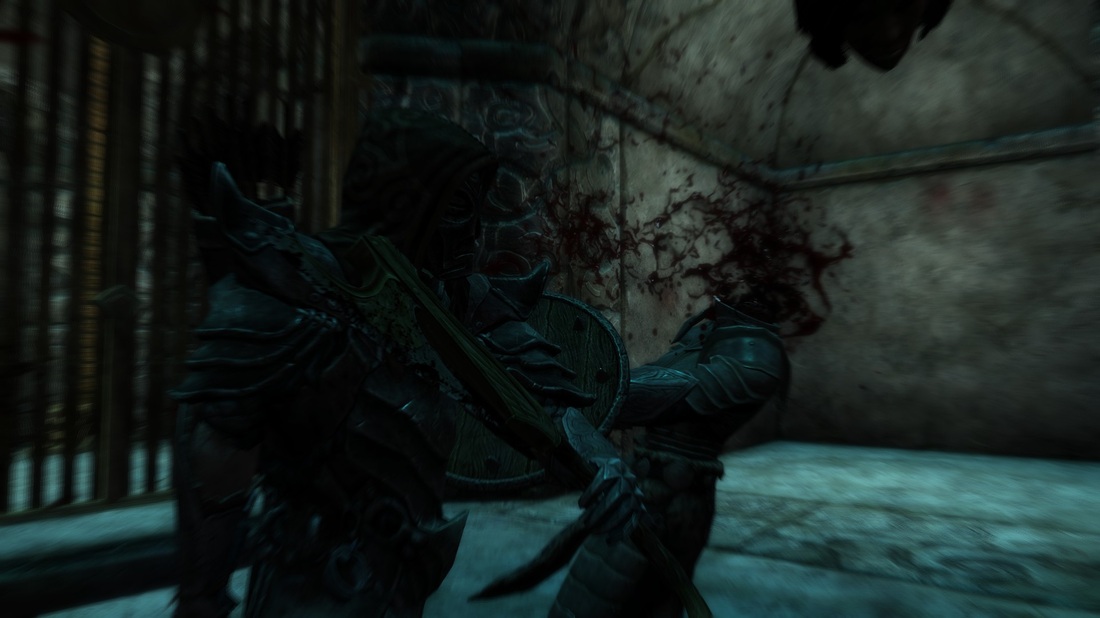
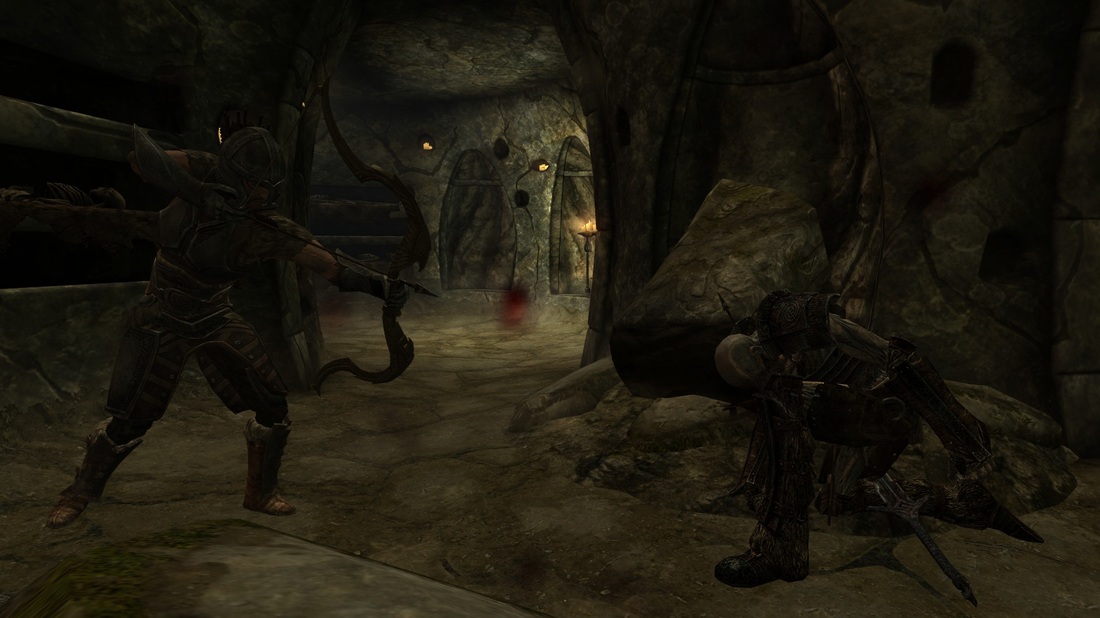
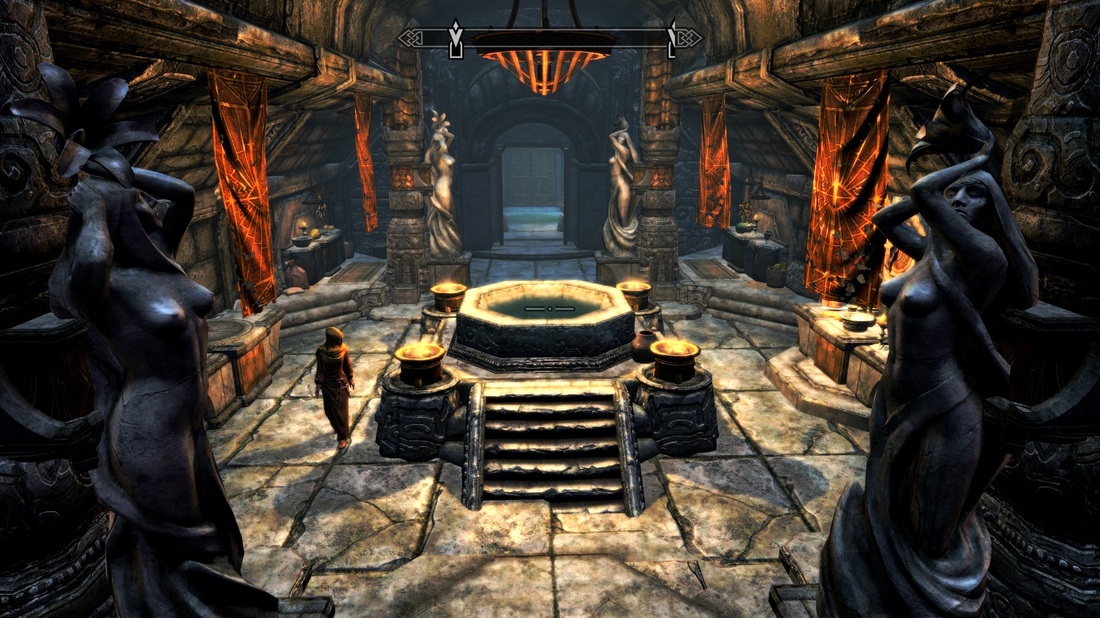
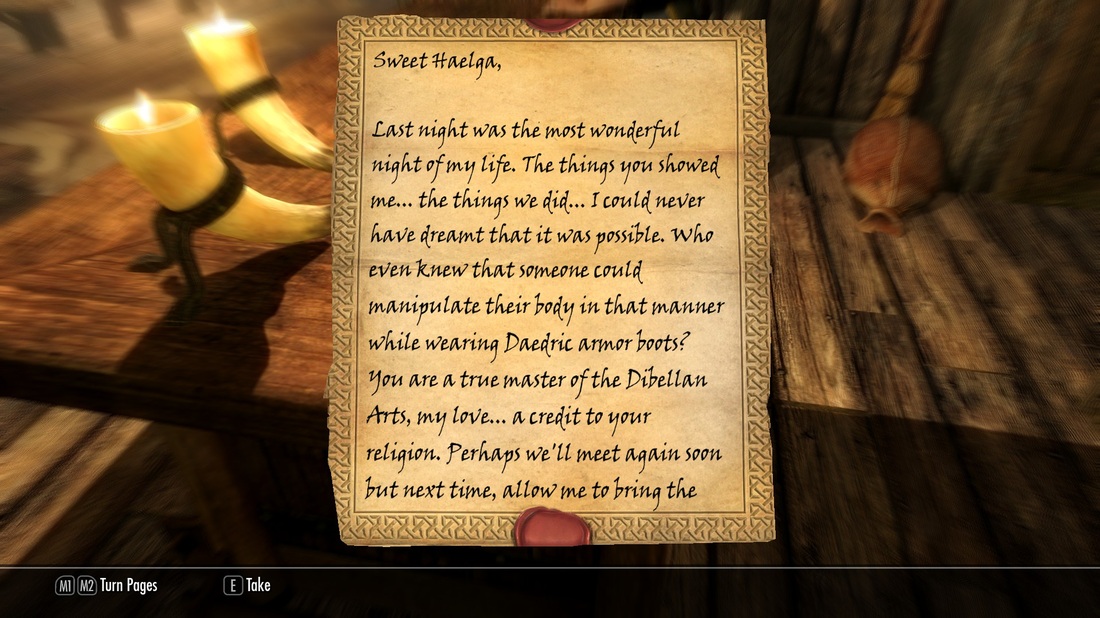
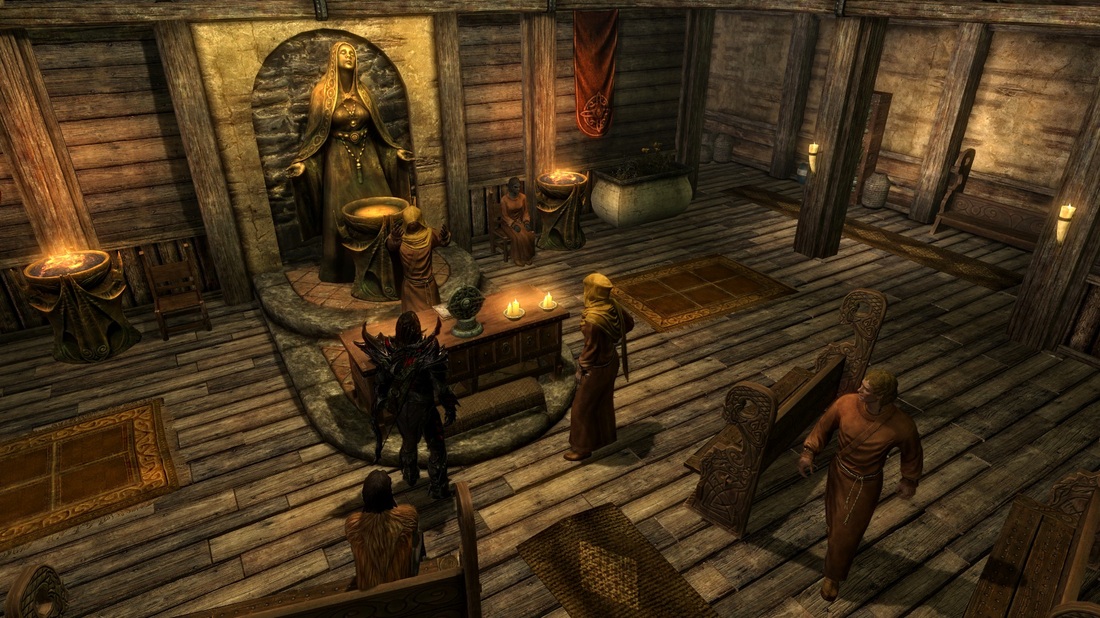
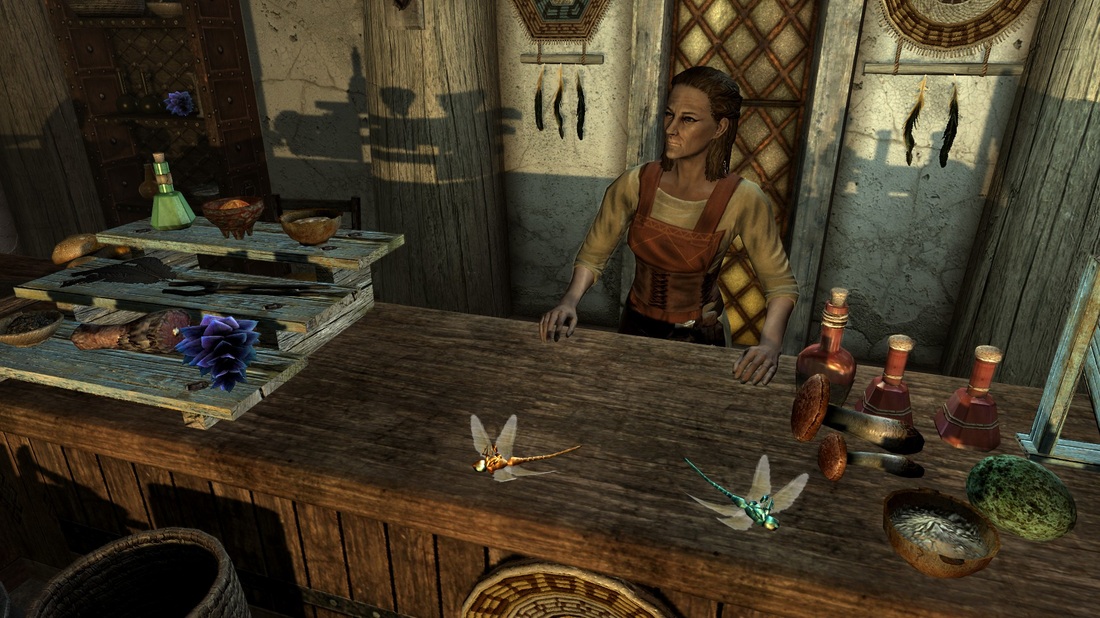
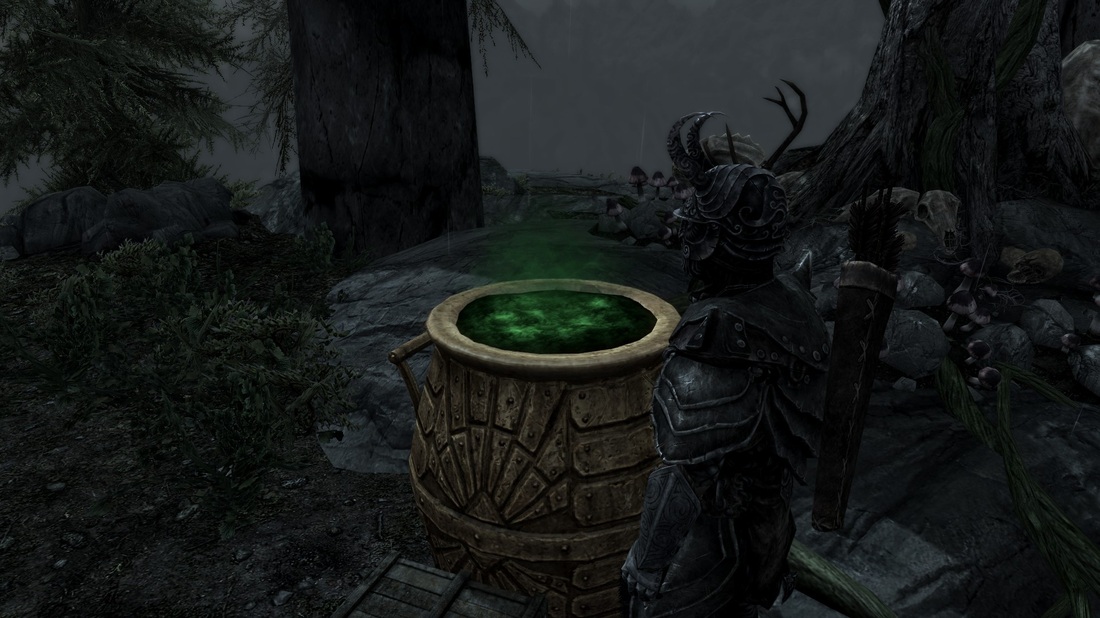
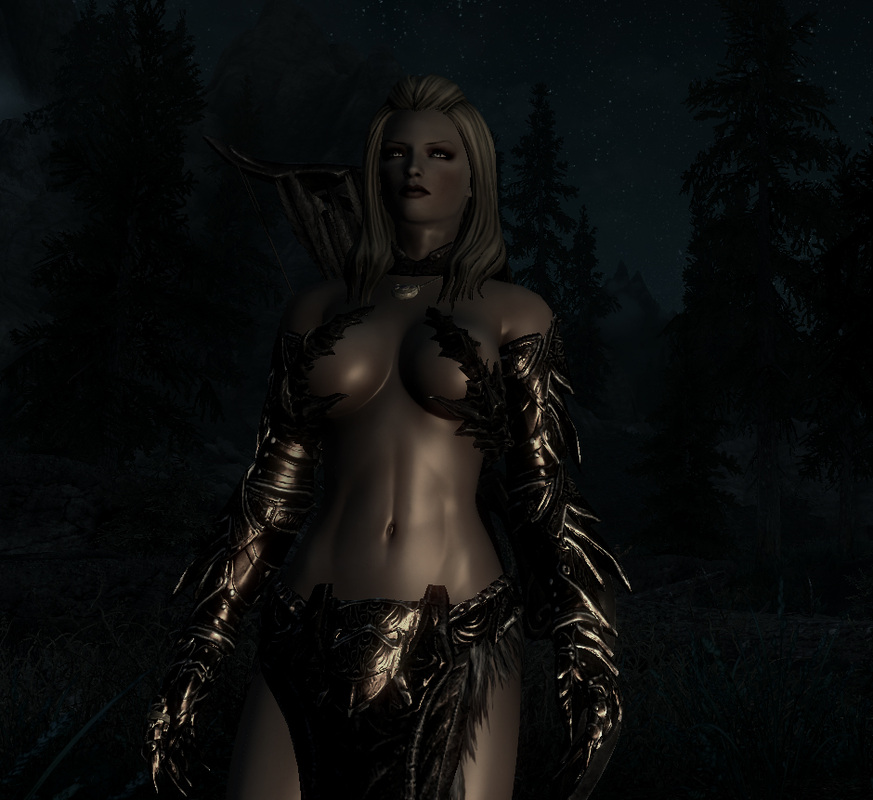
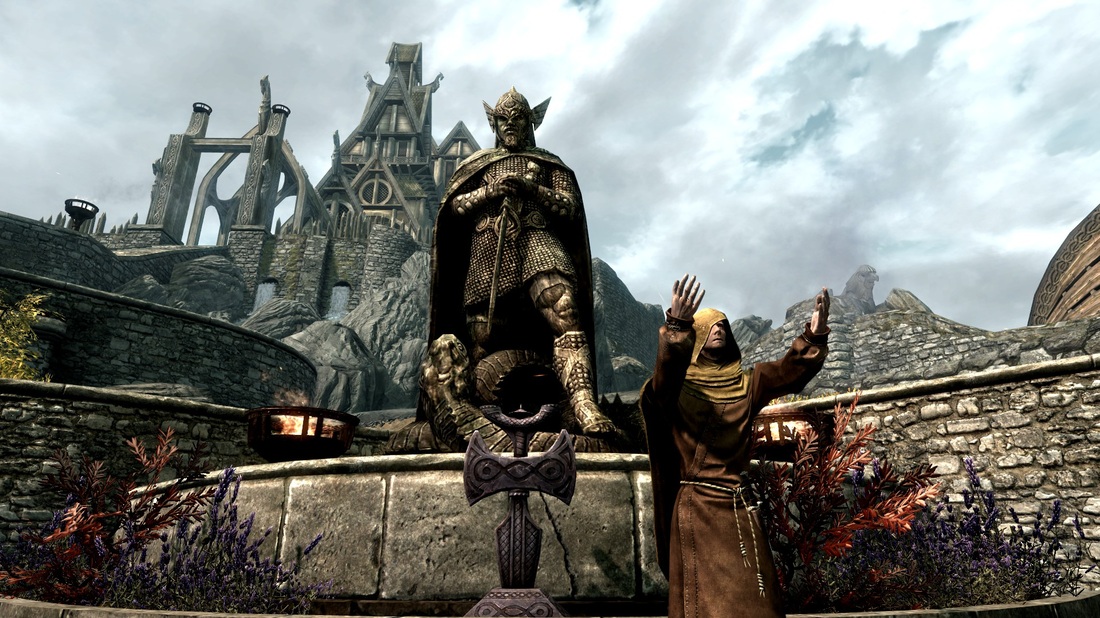

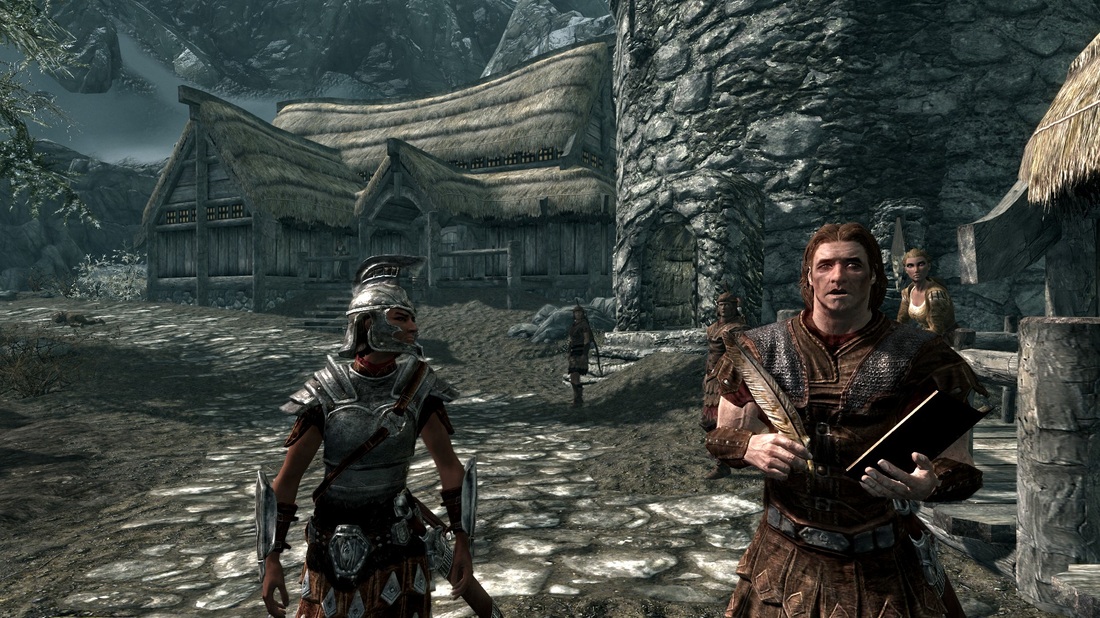
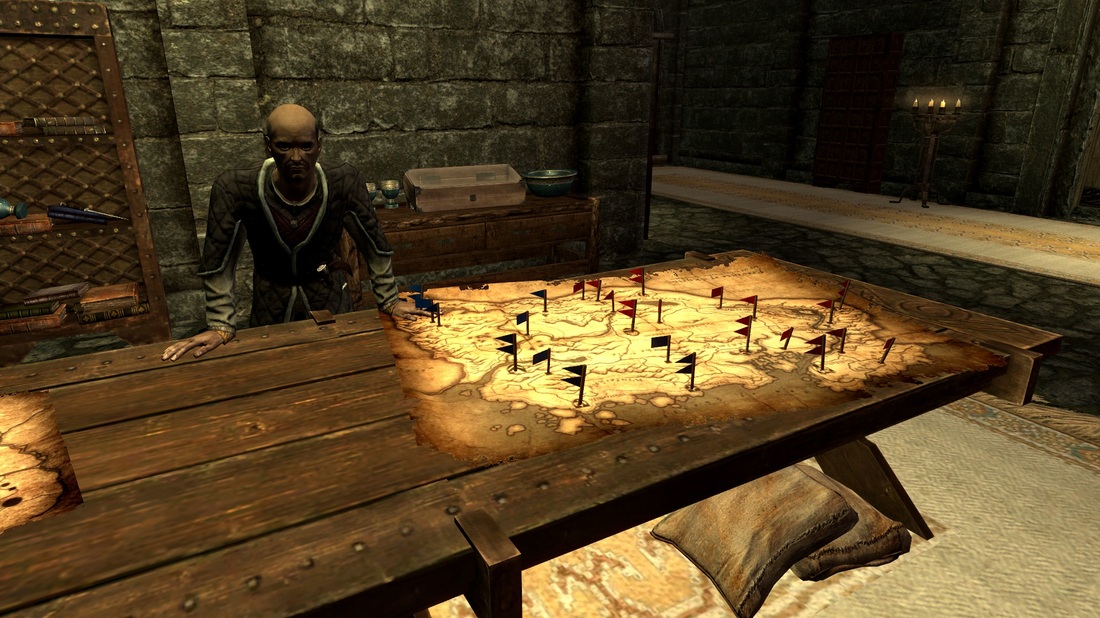
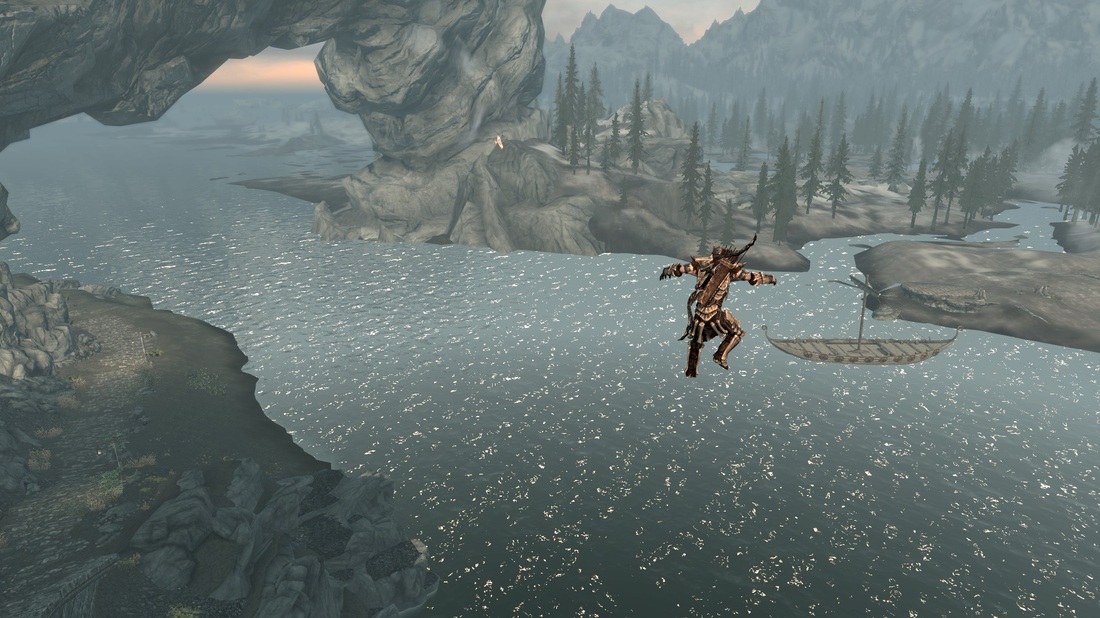
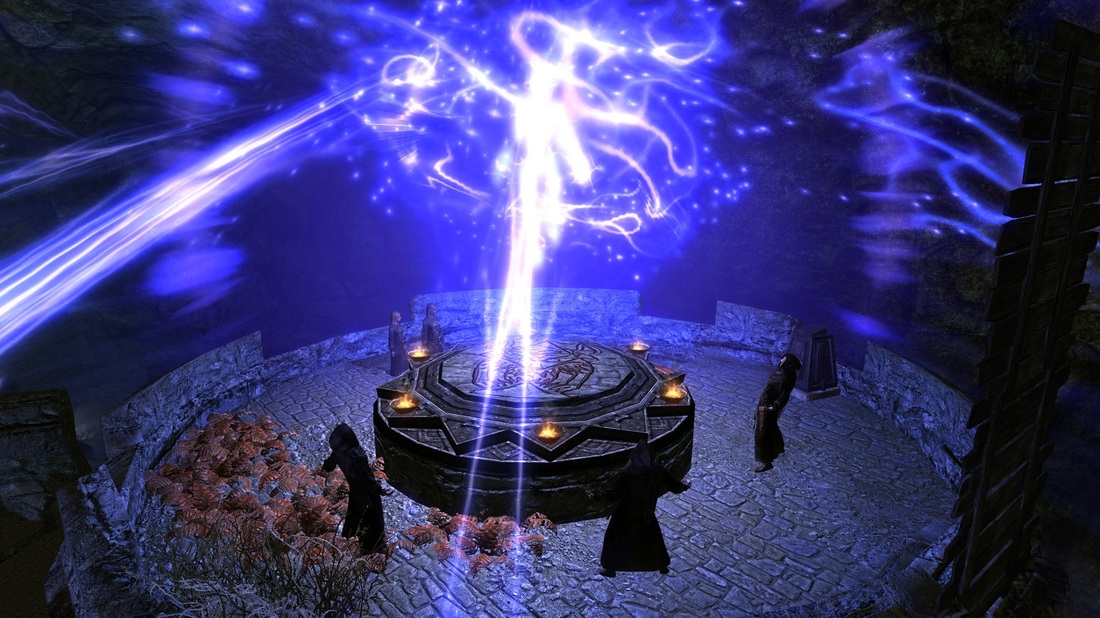
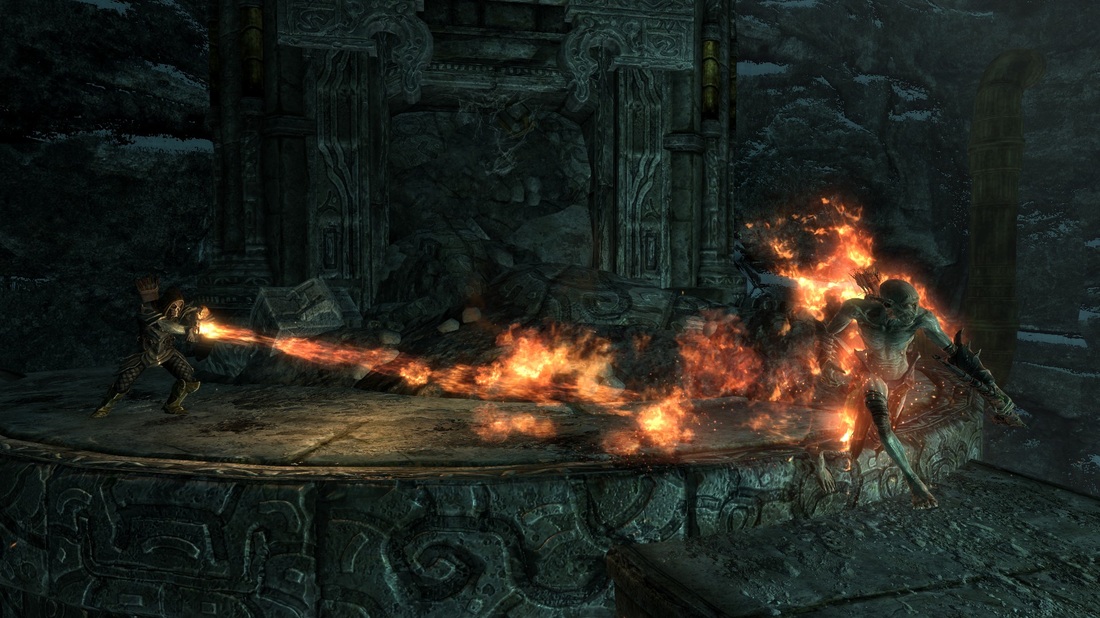
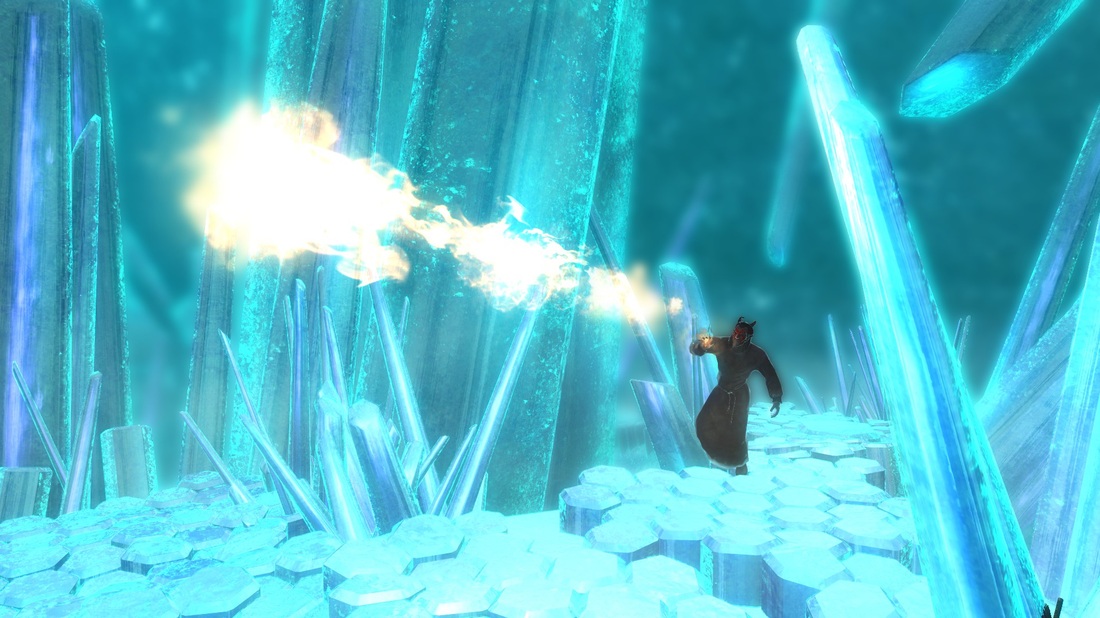
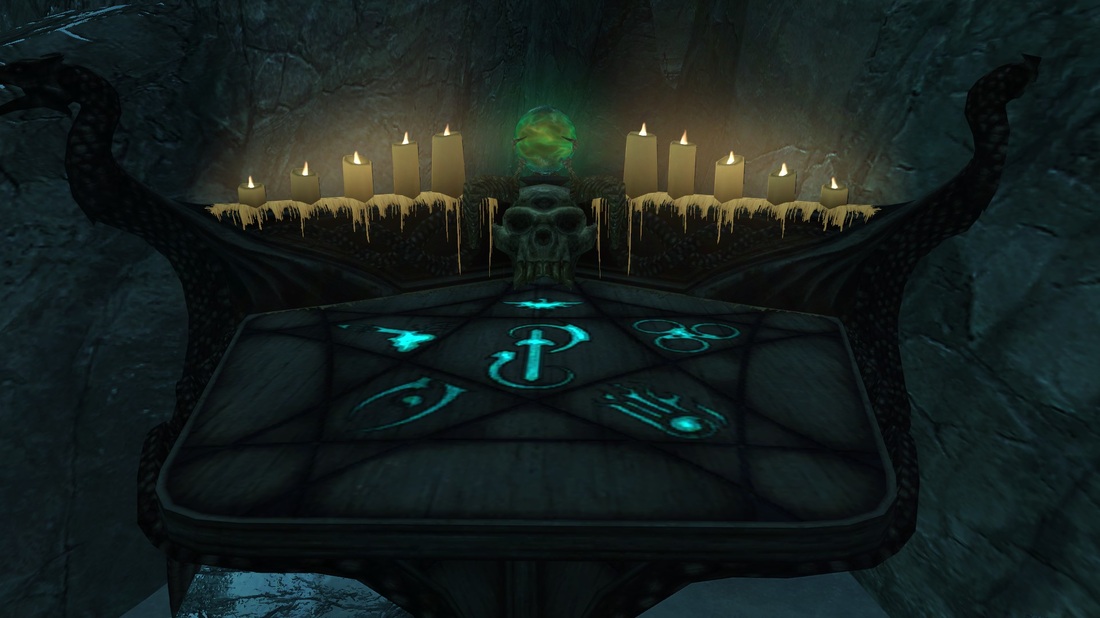
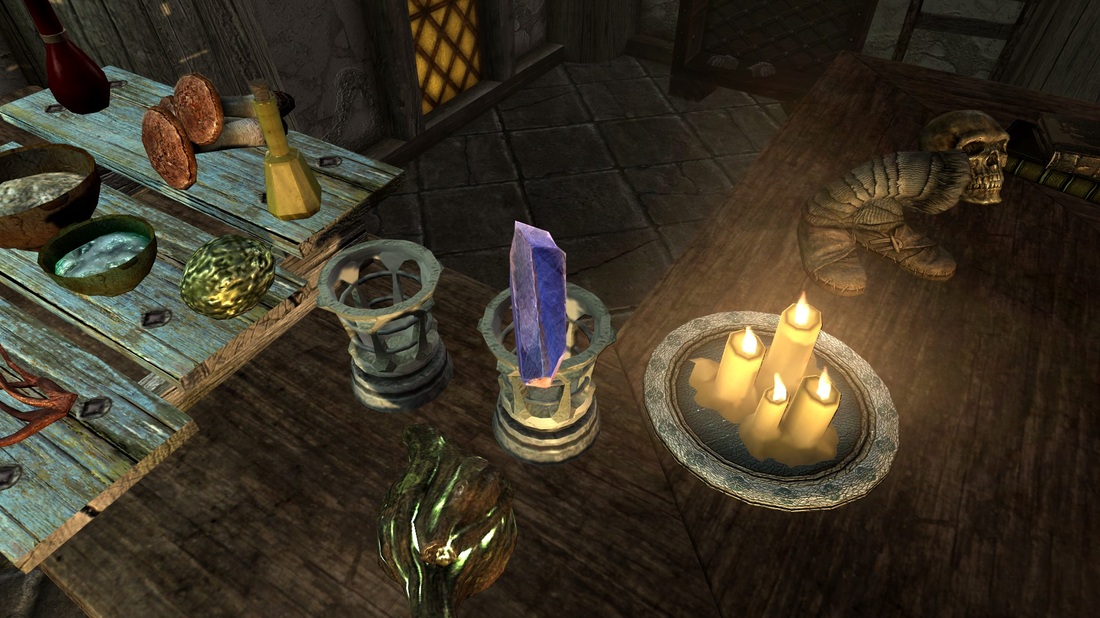
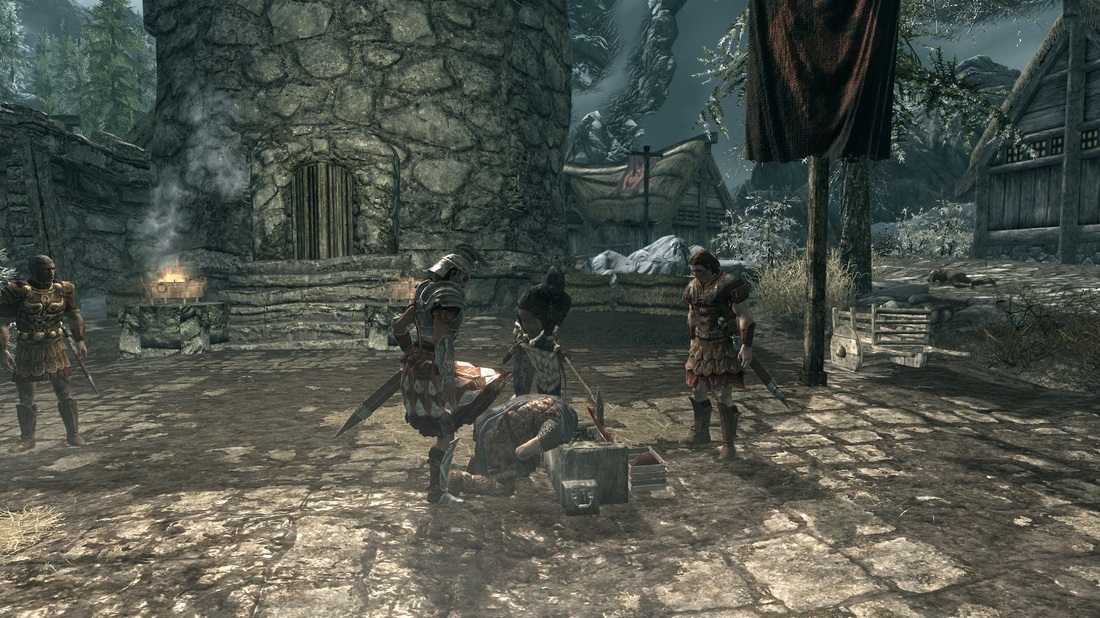
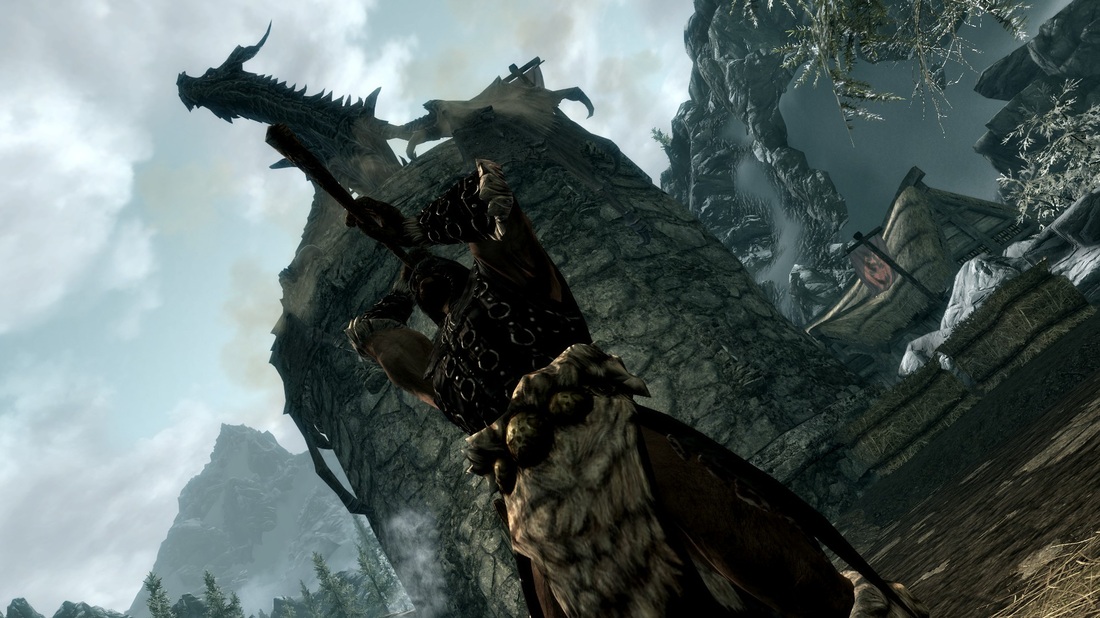
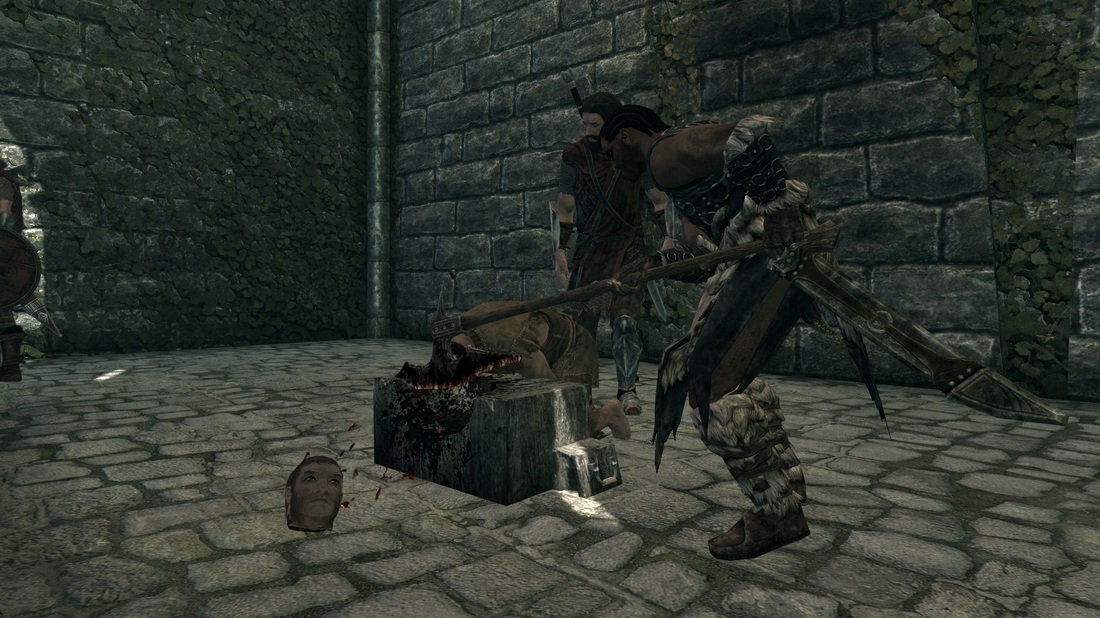
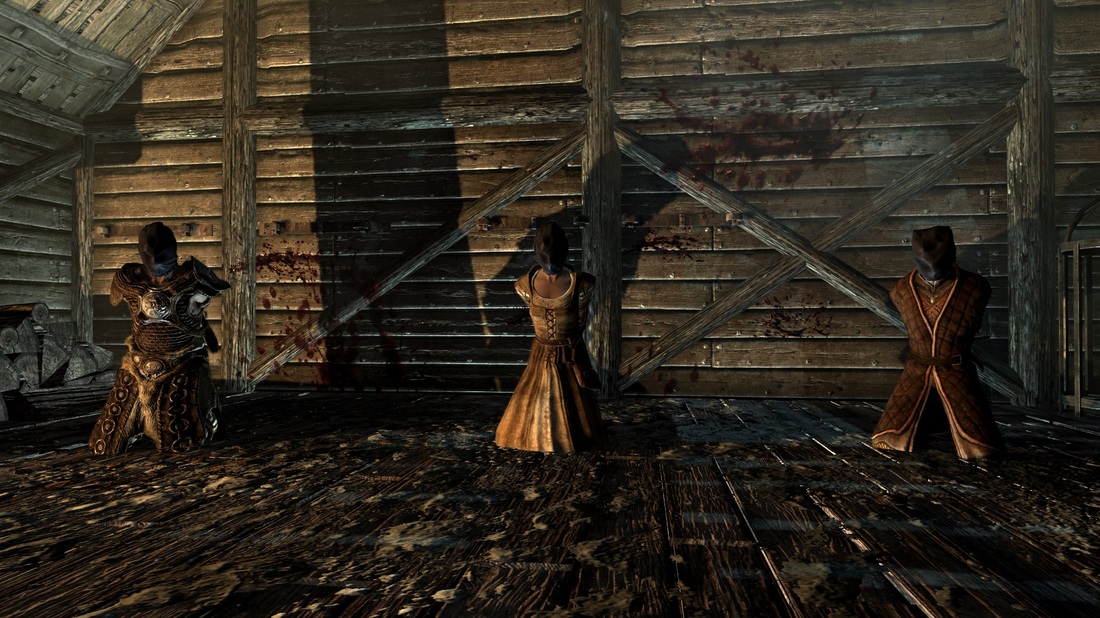
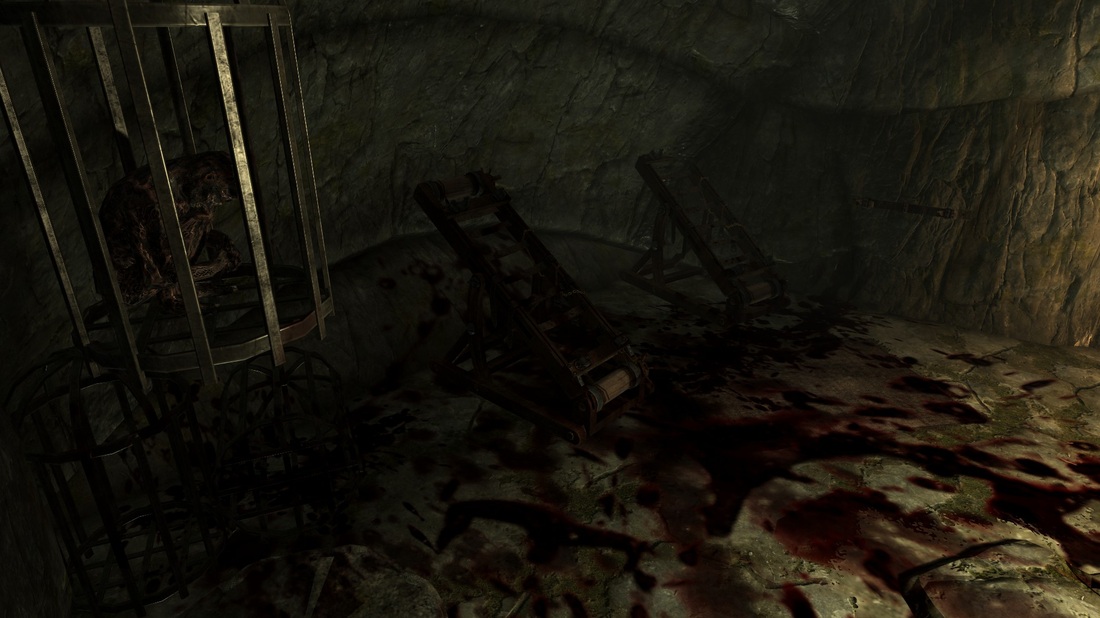
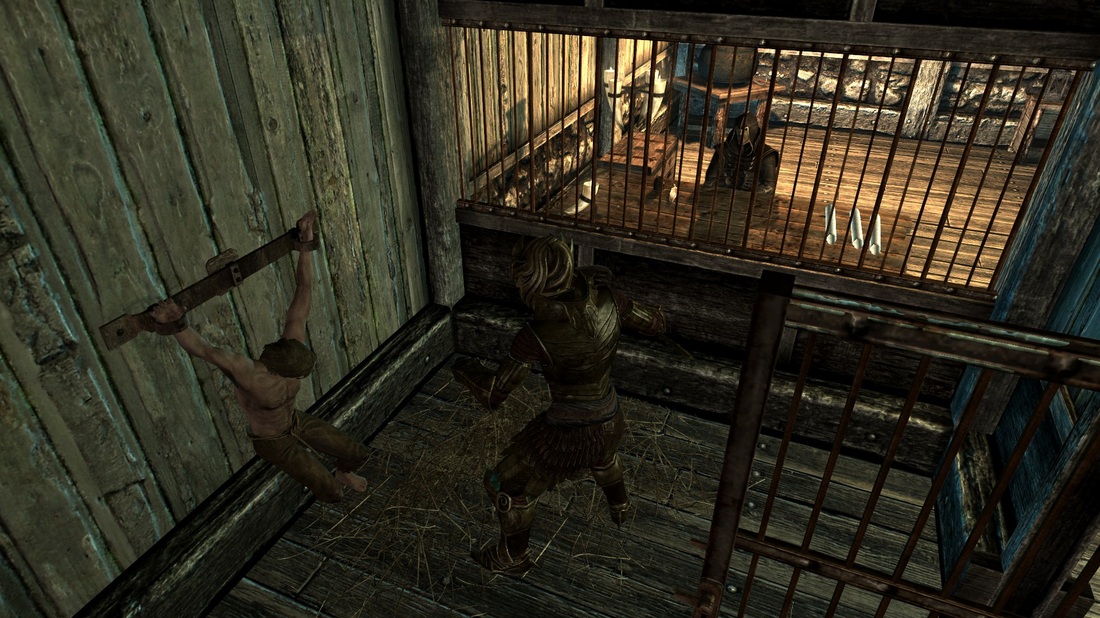
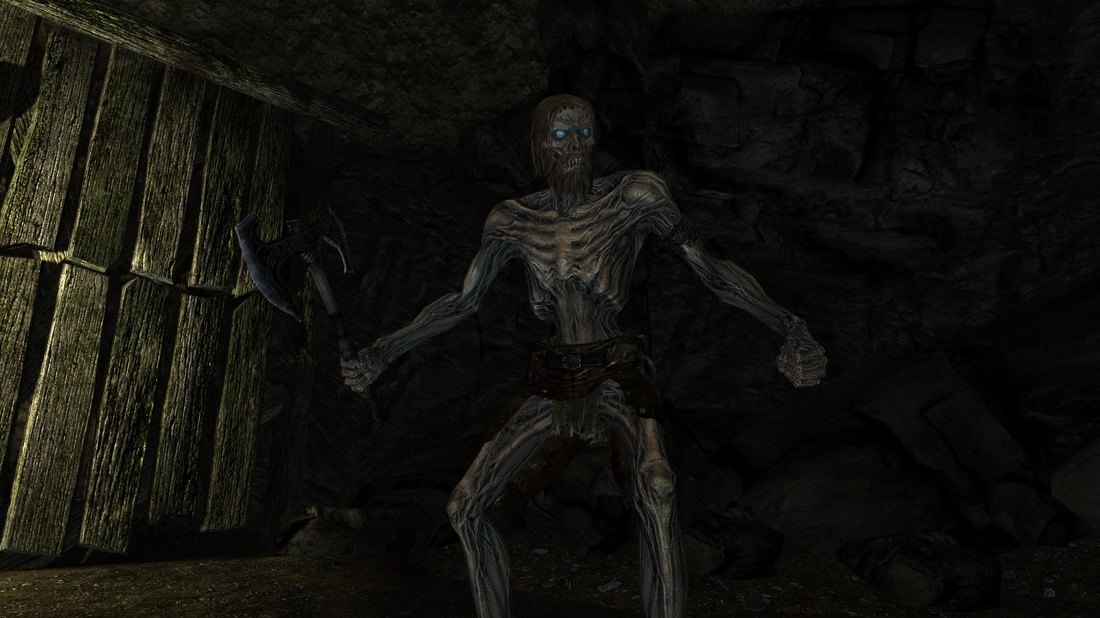
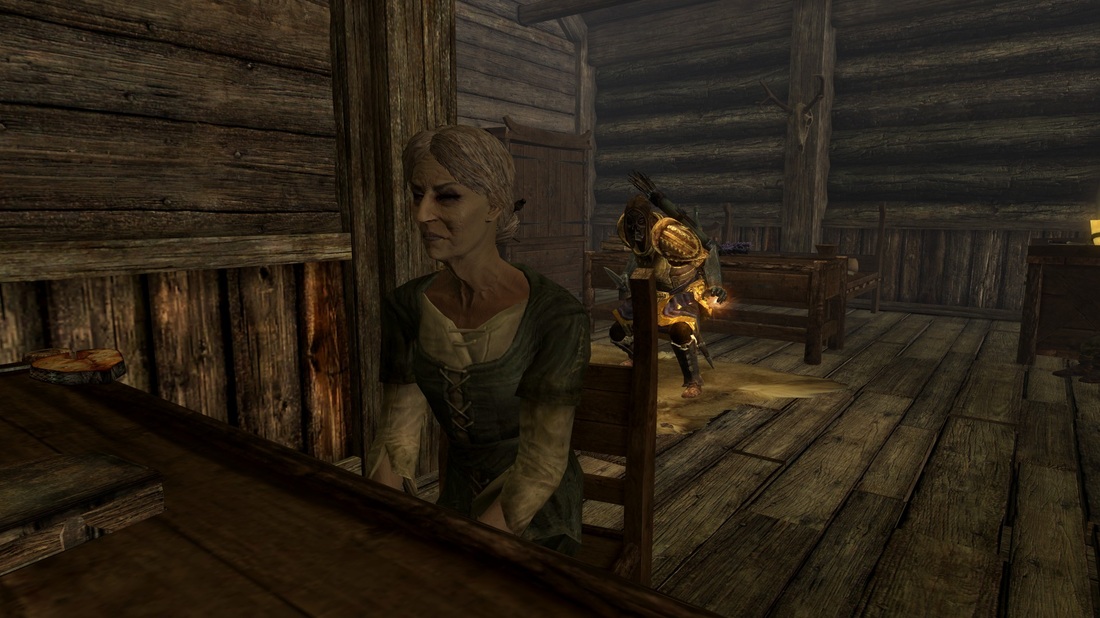
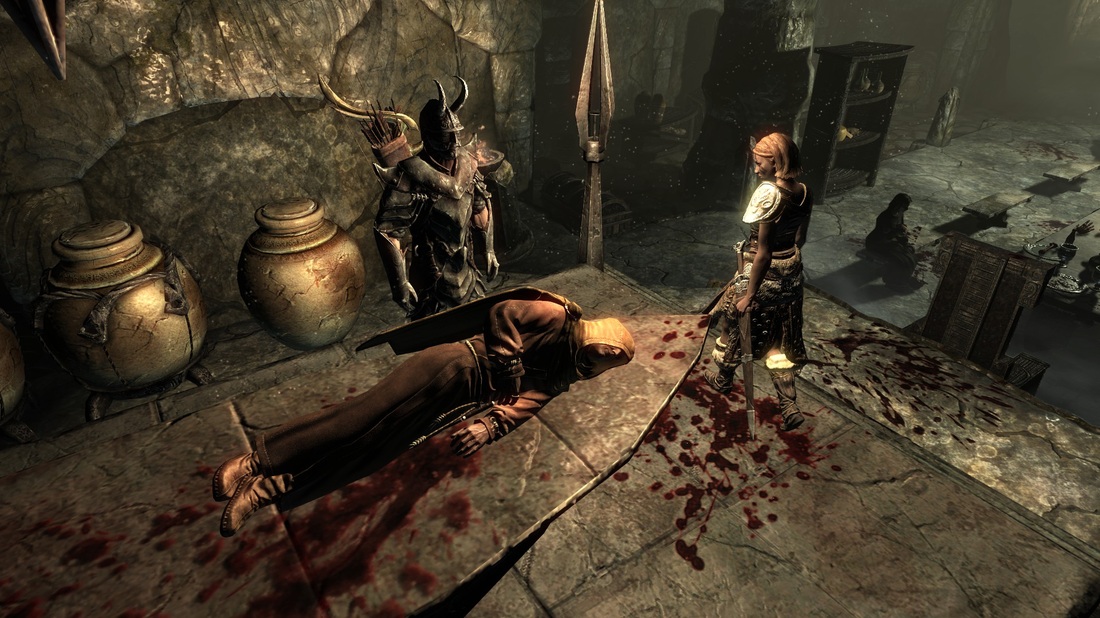
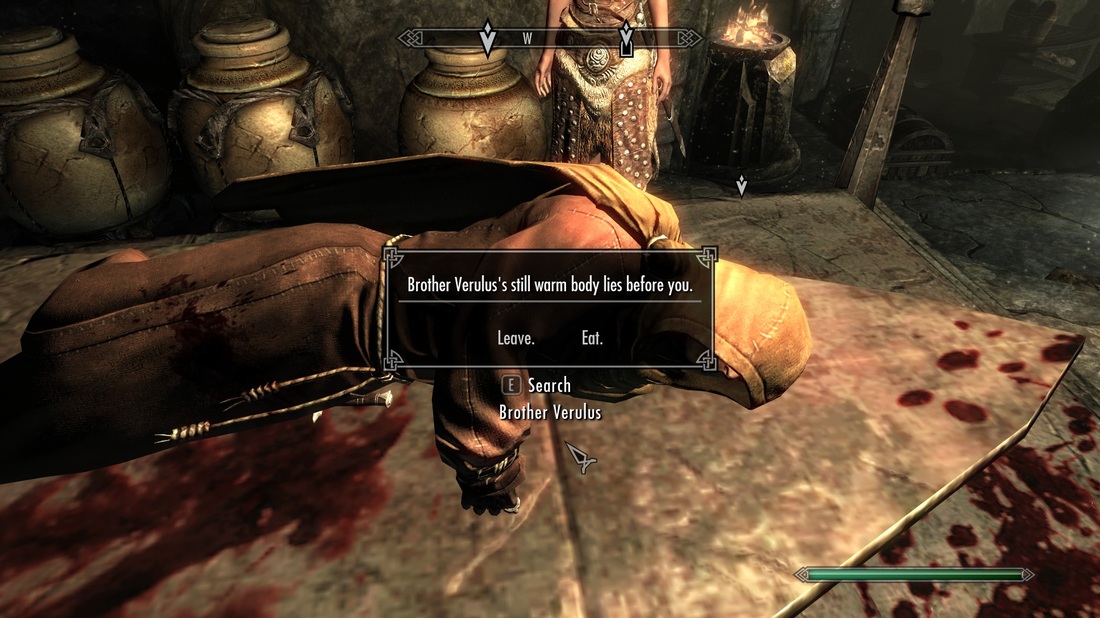
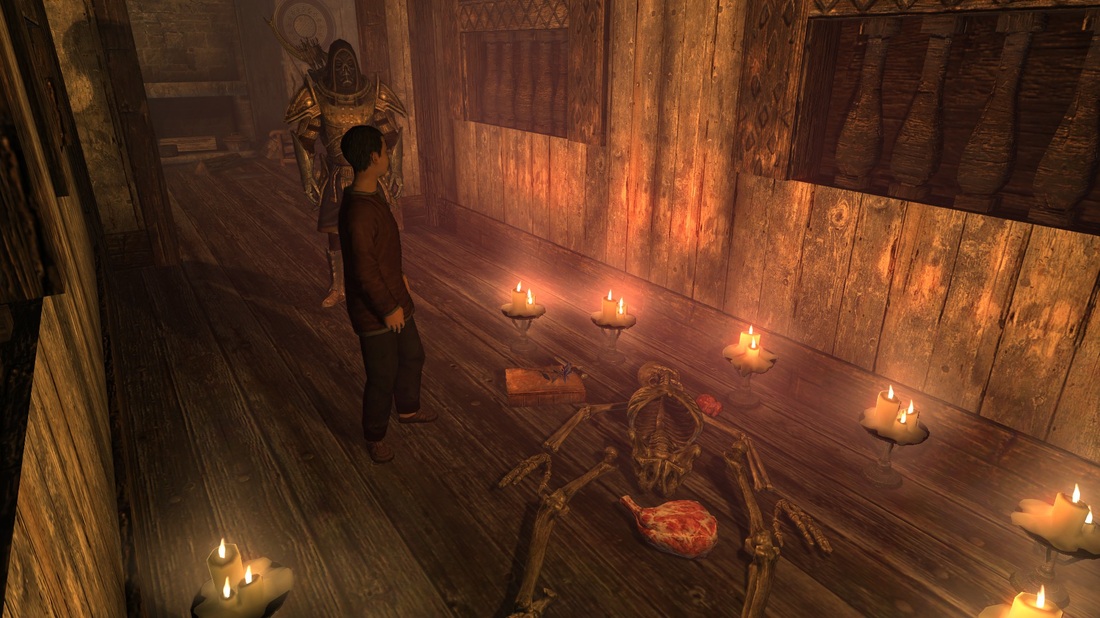
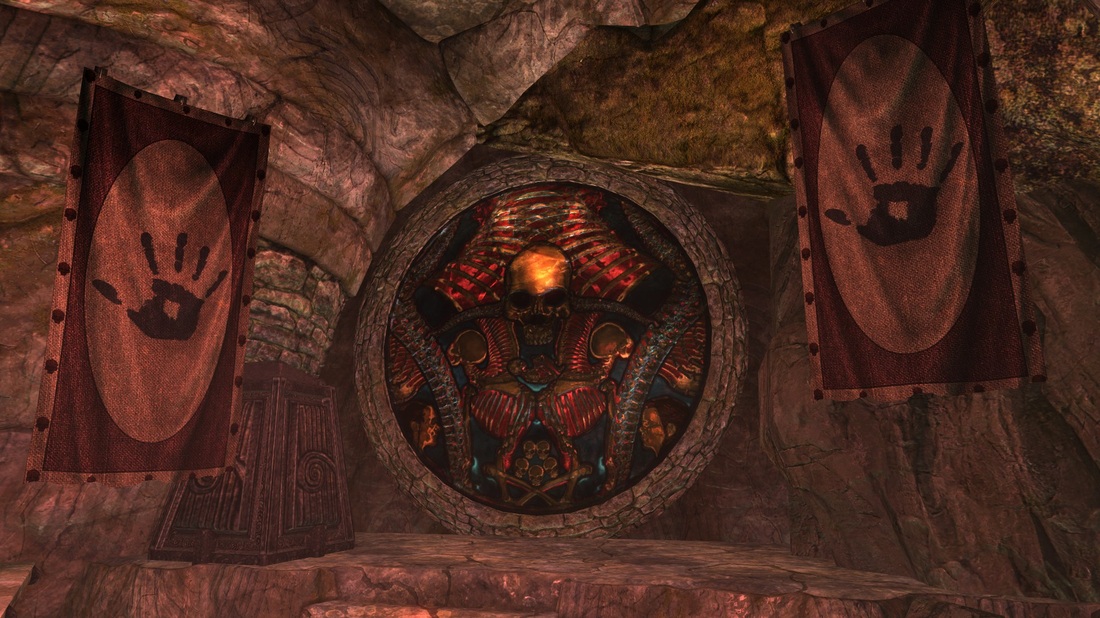
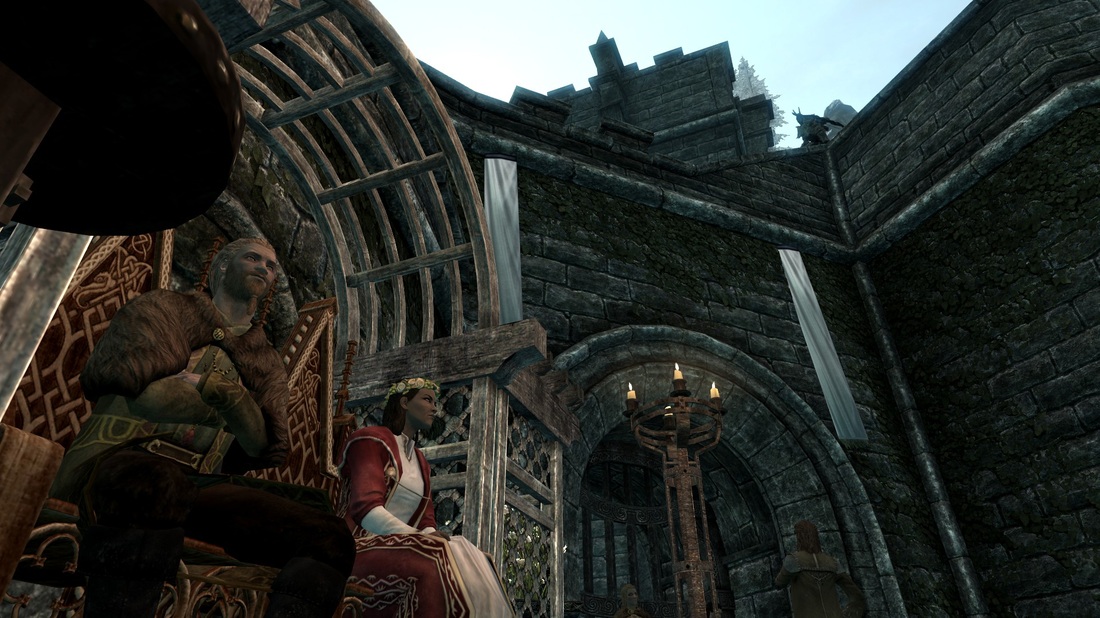
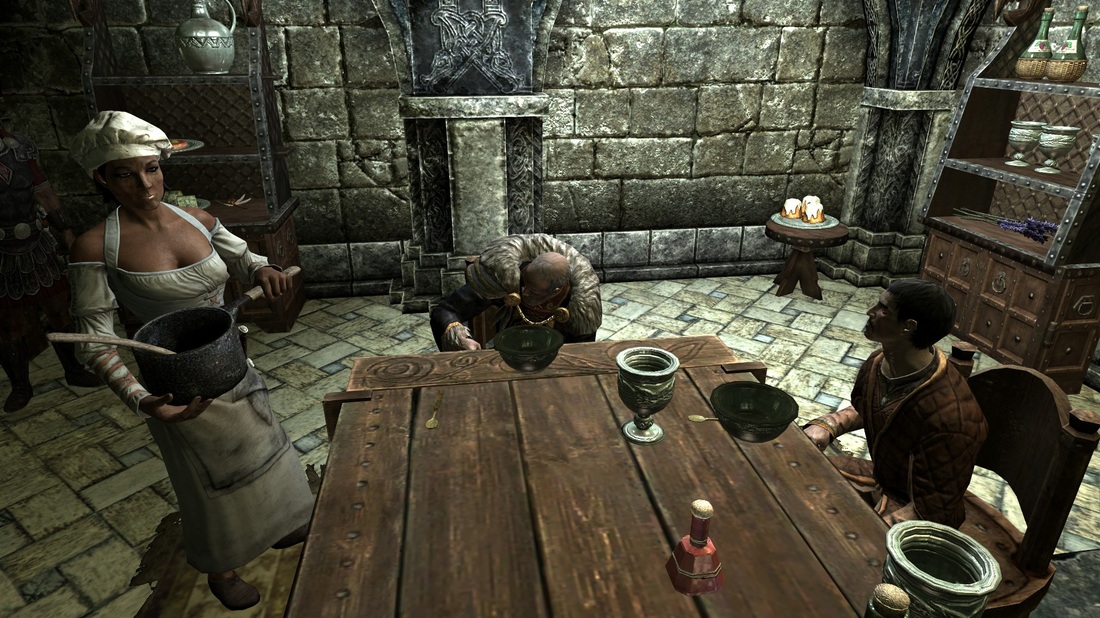
 RSS Feed
RSS Feed